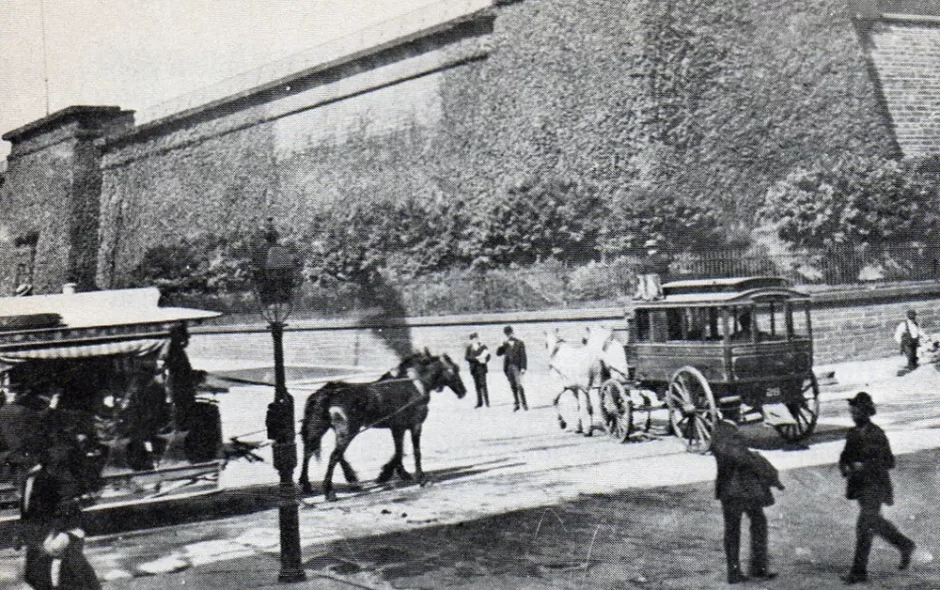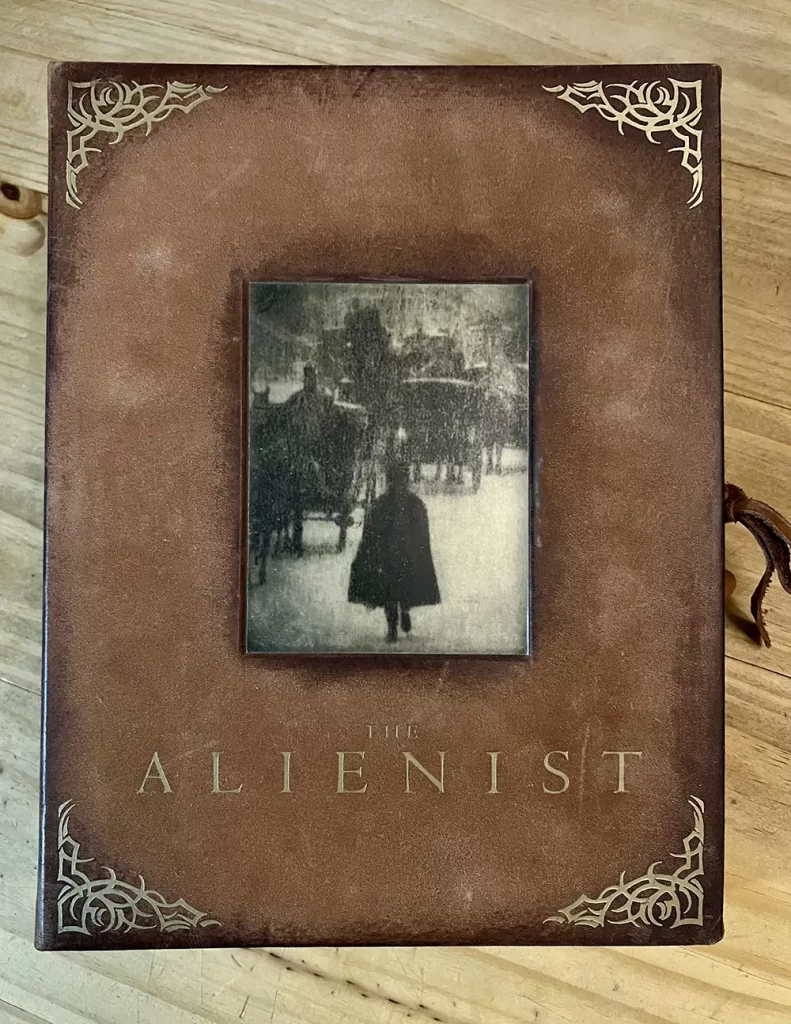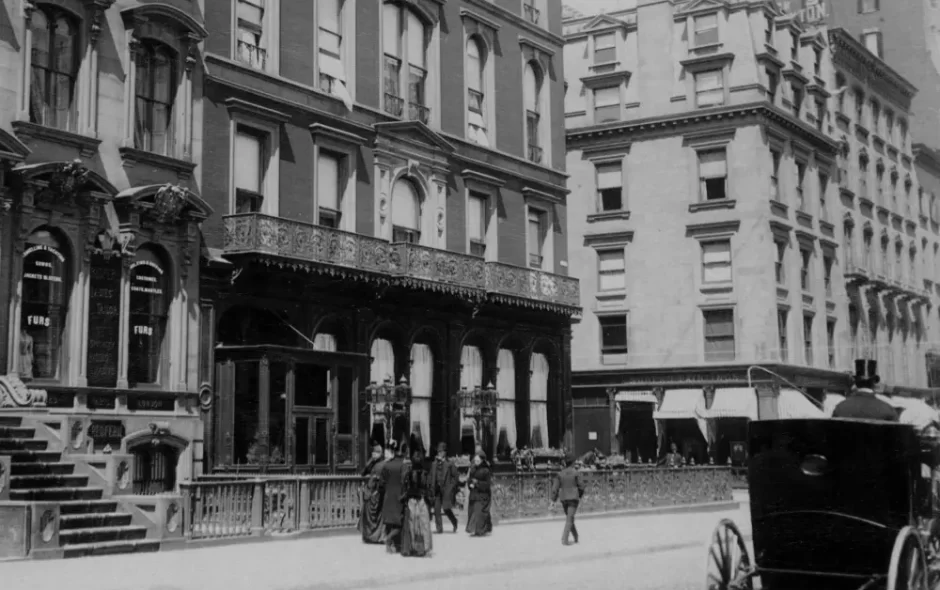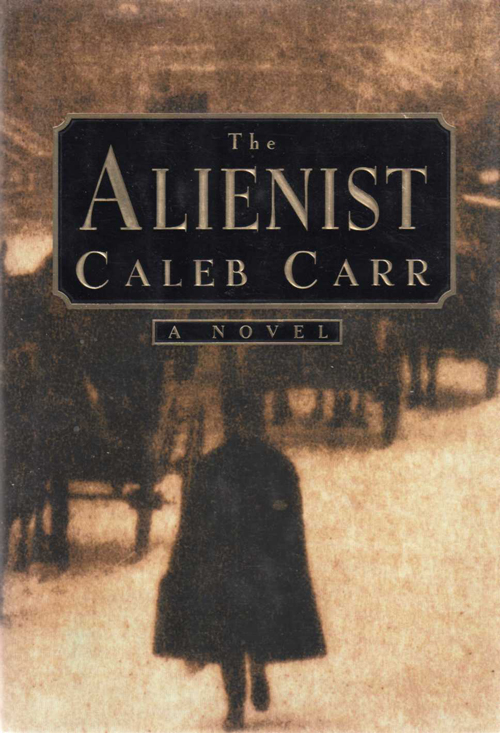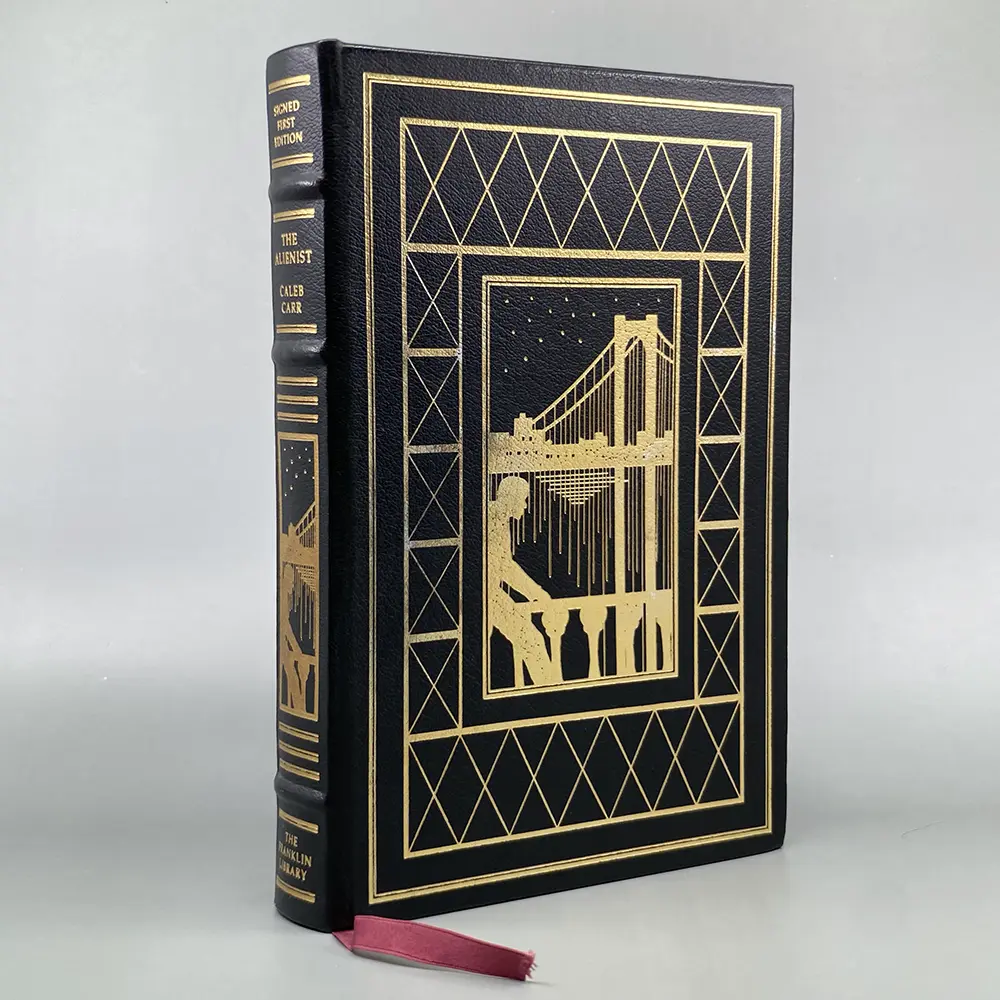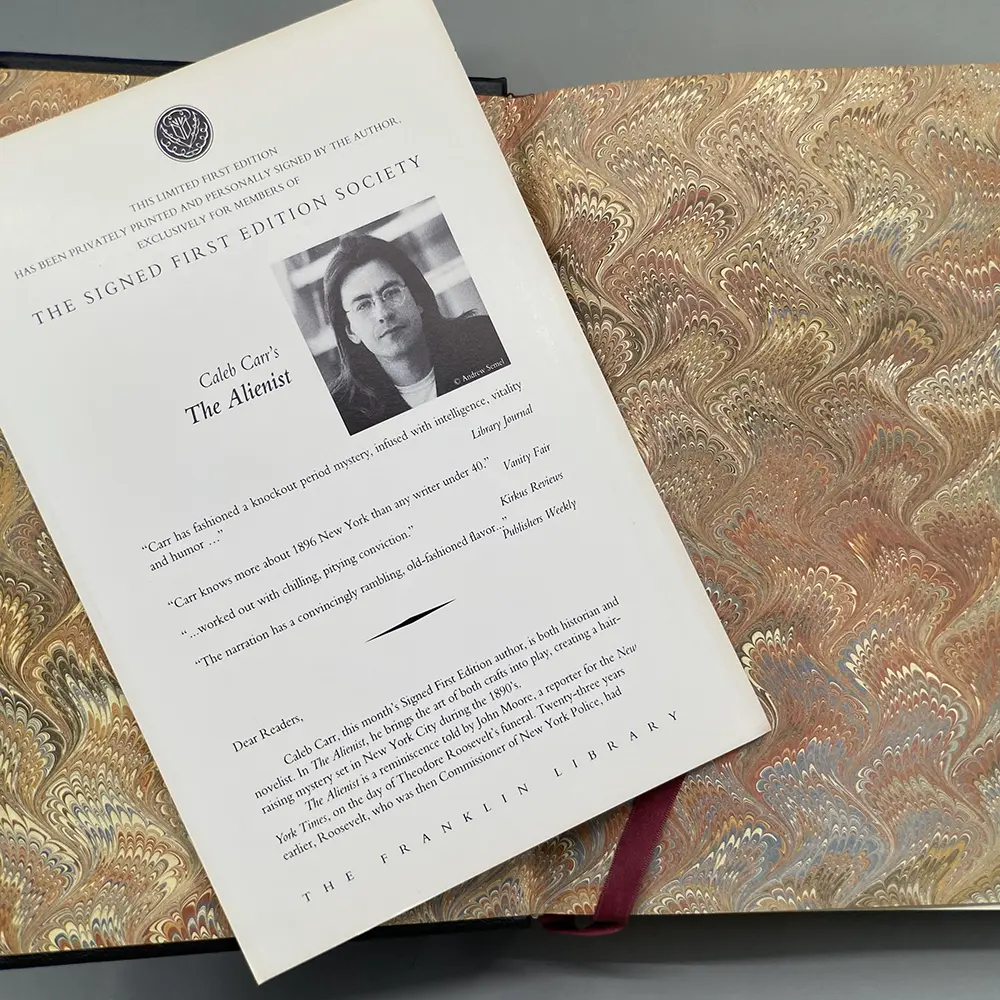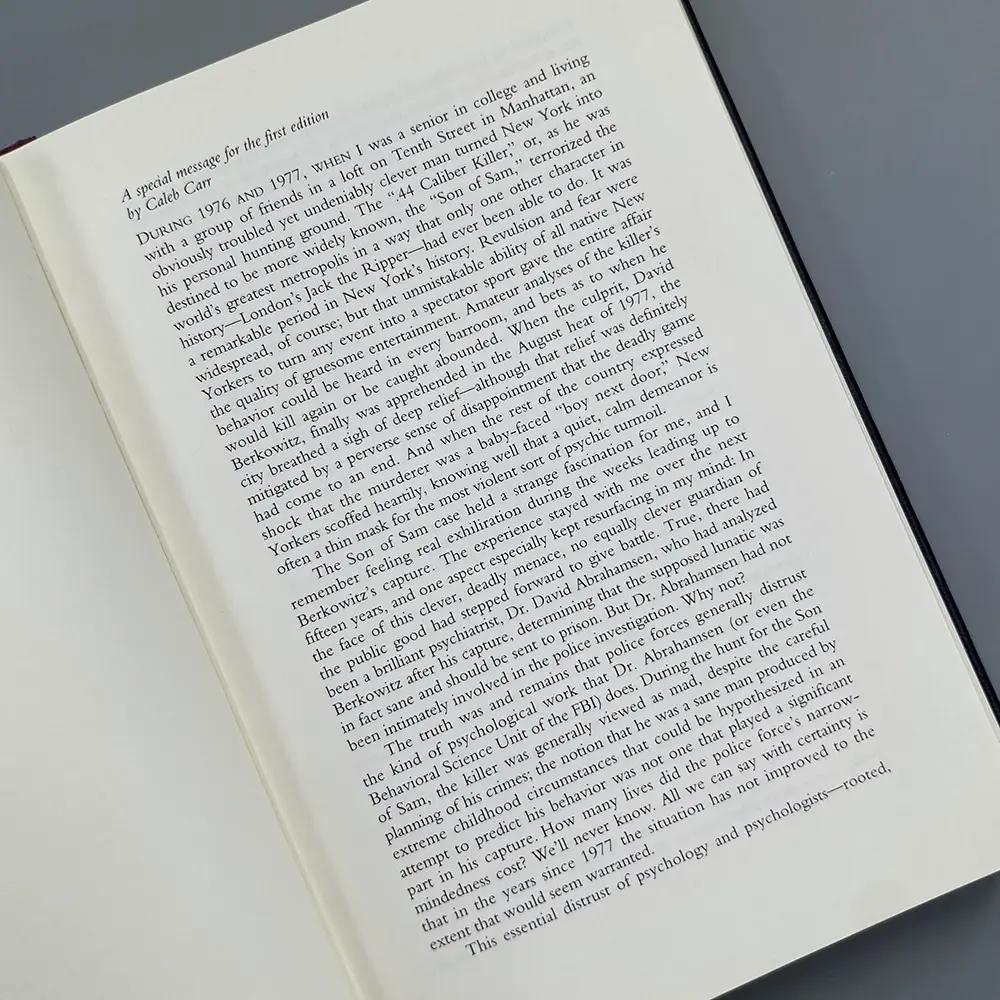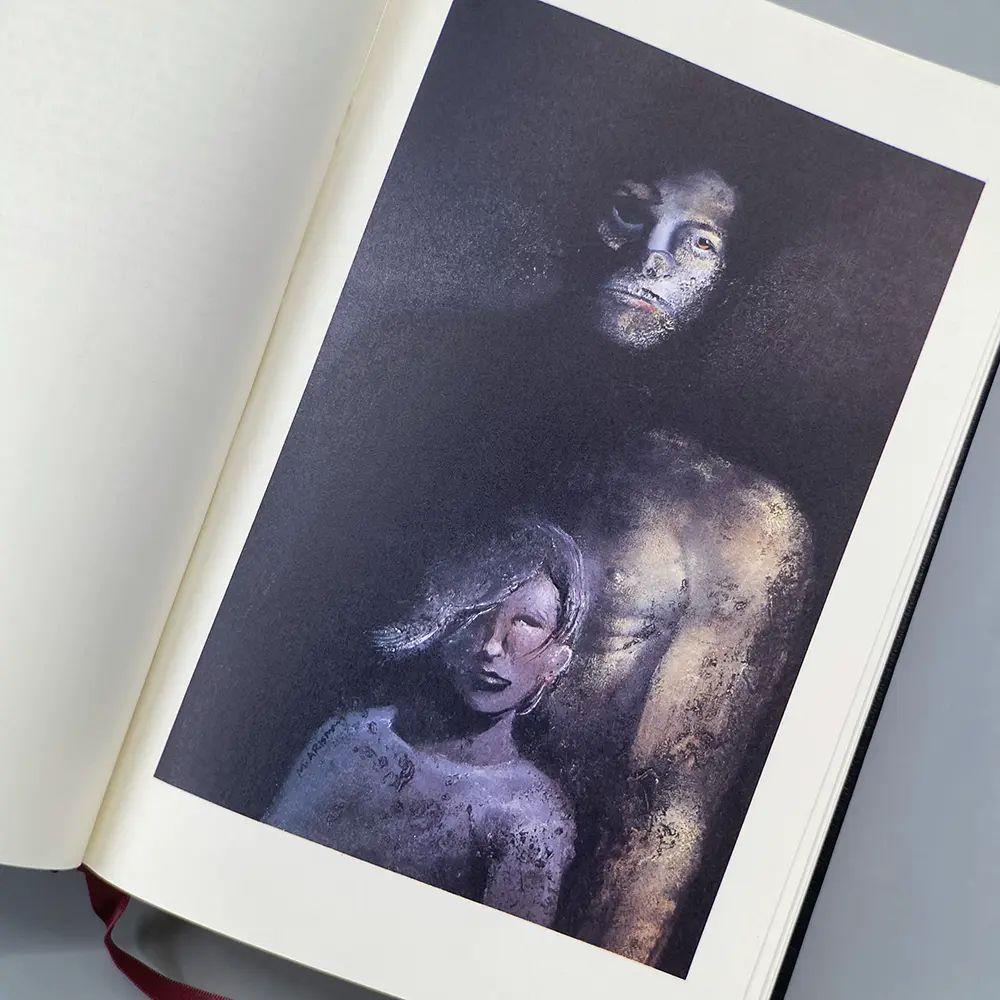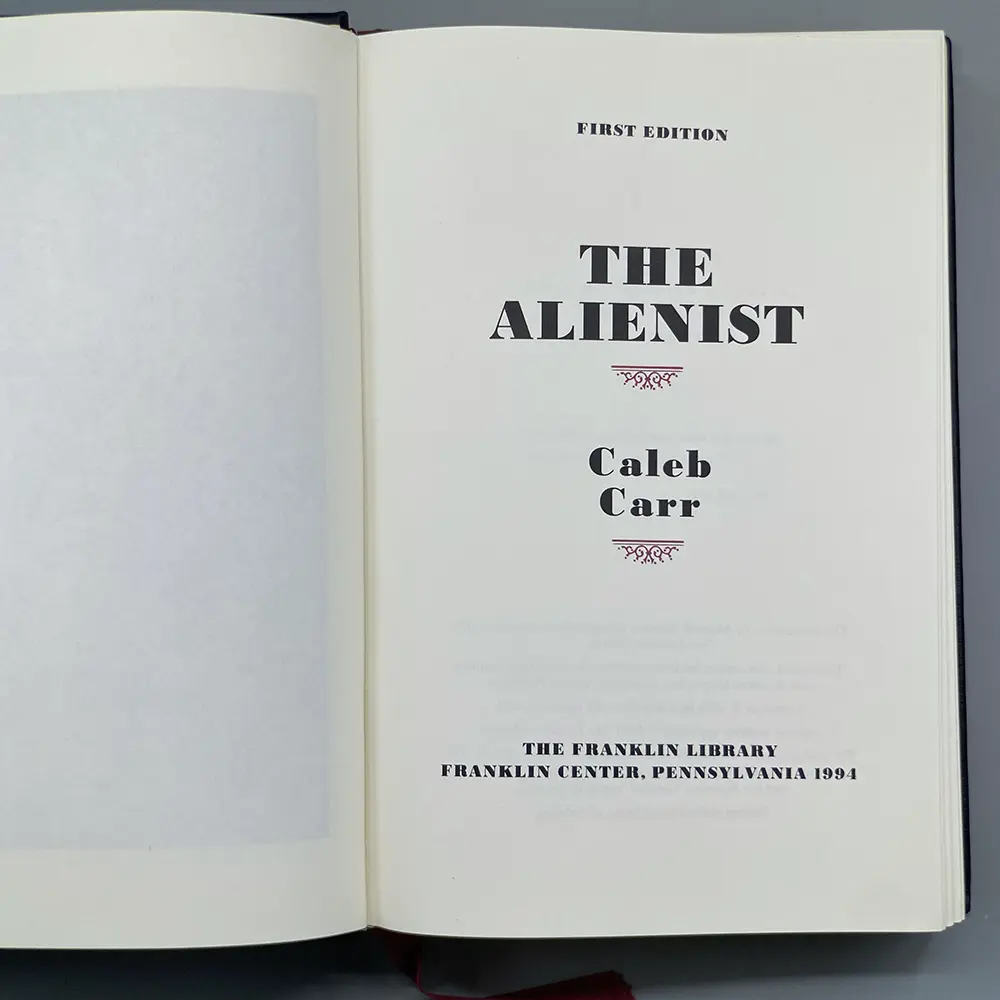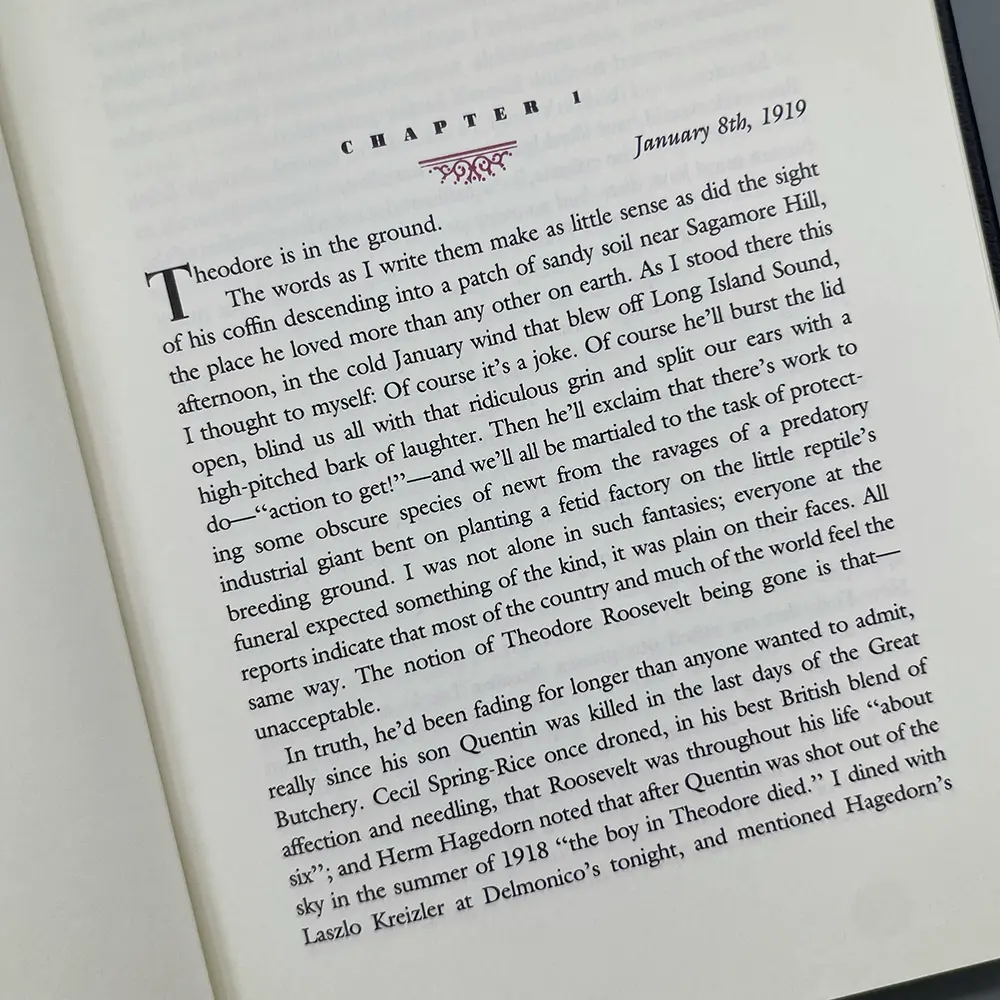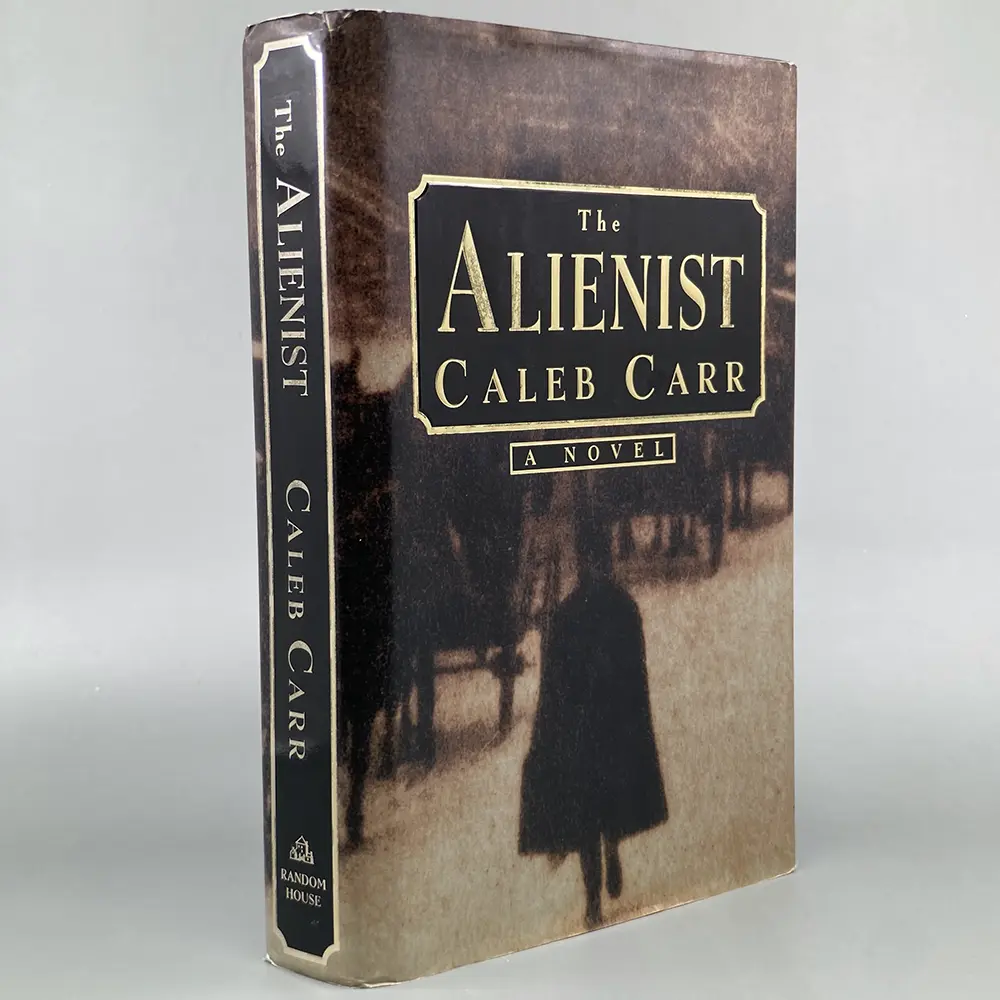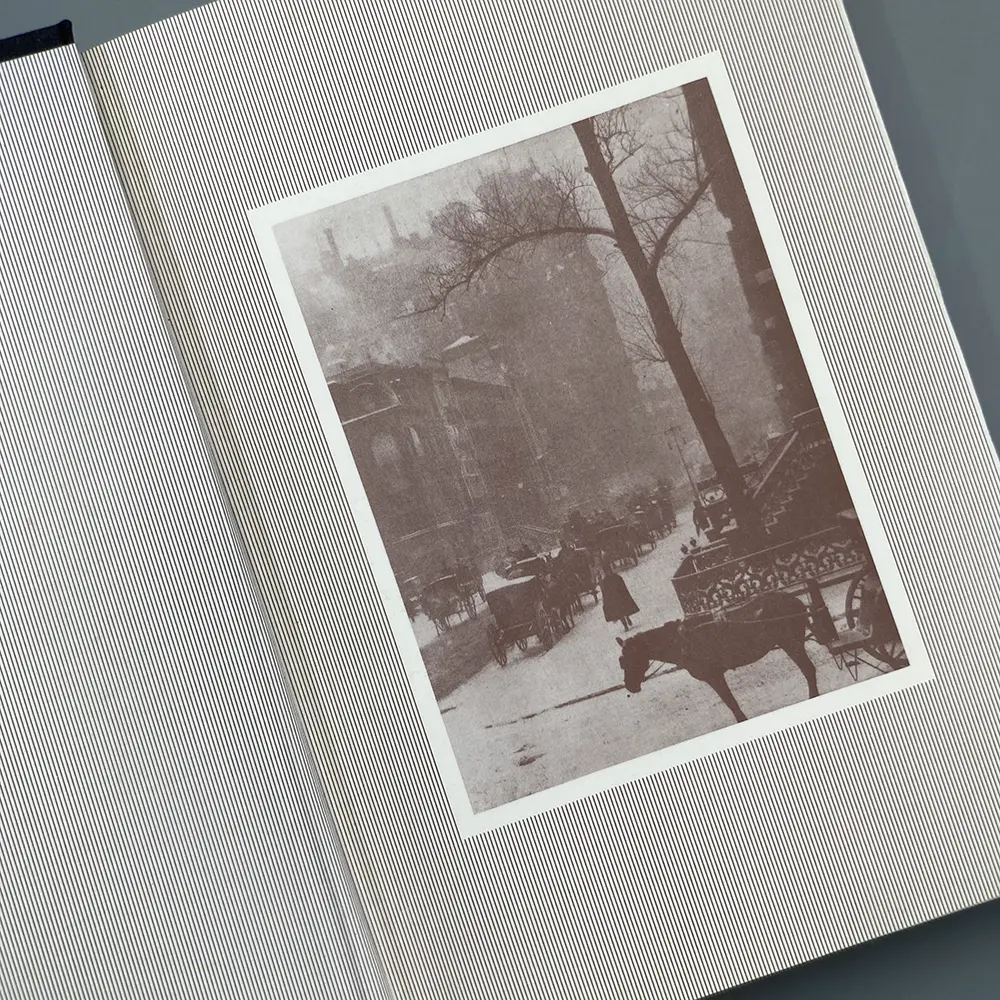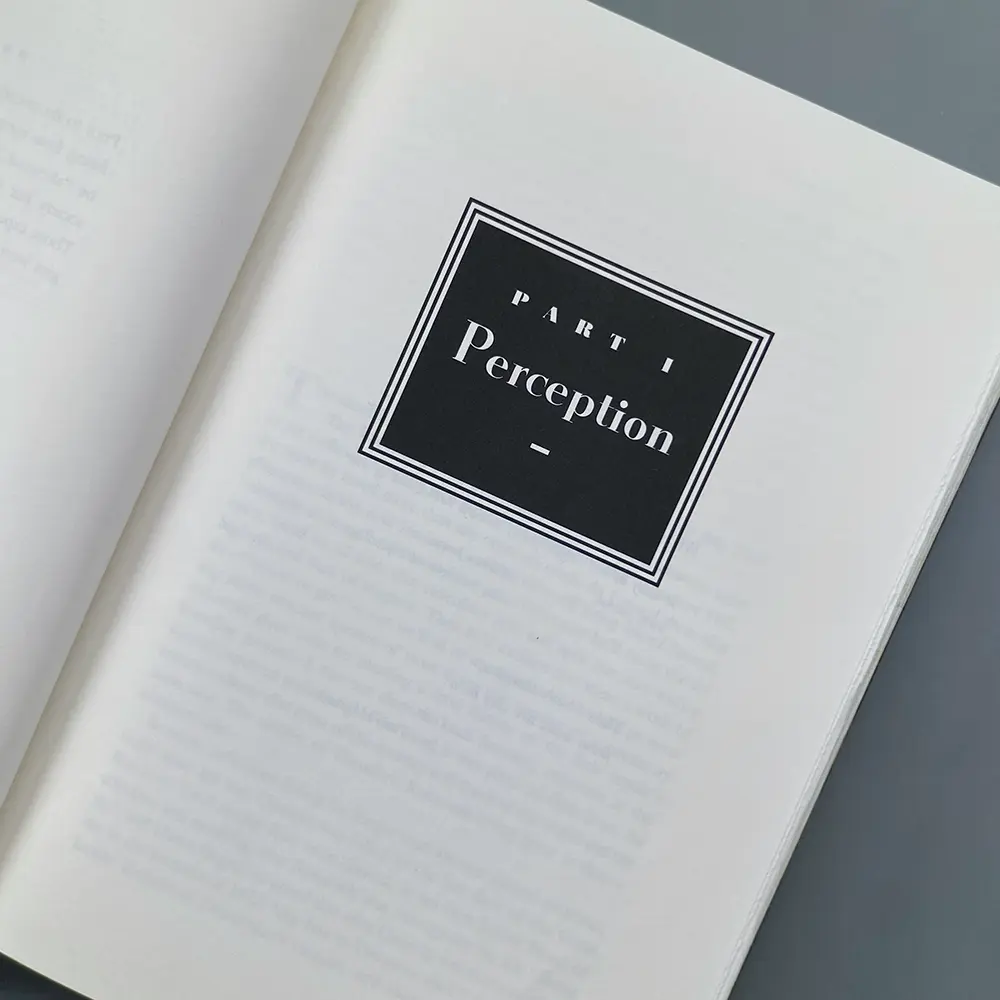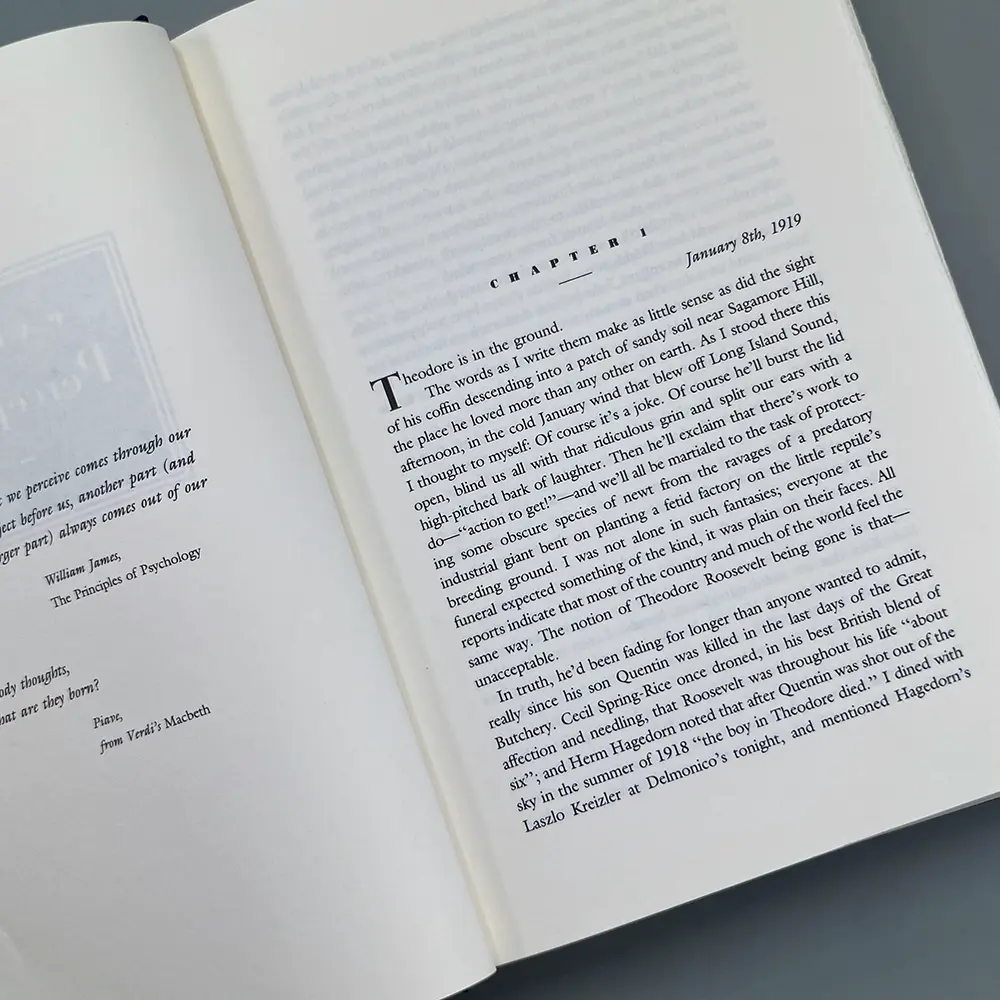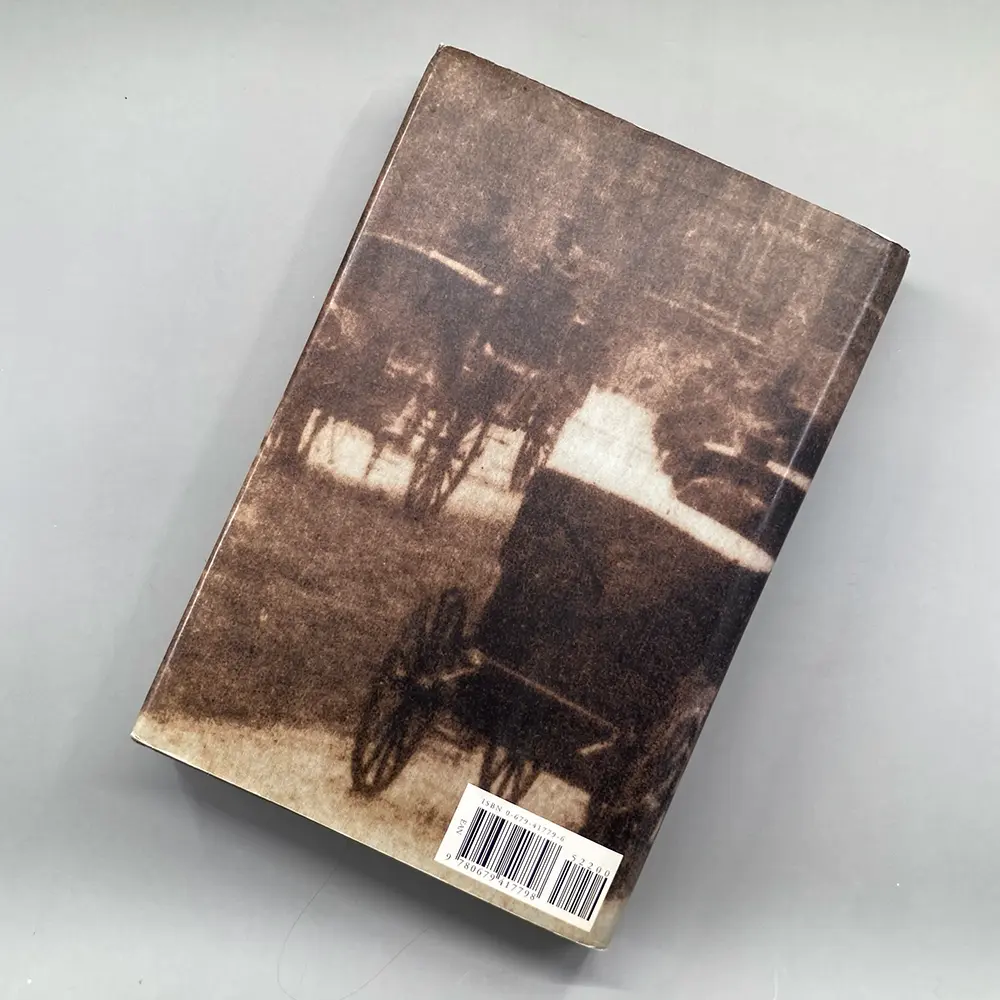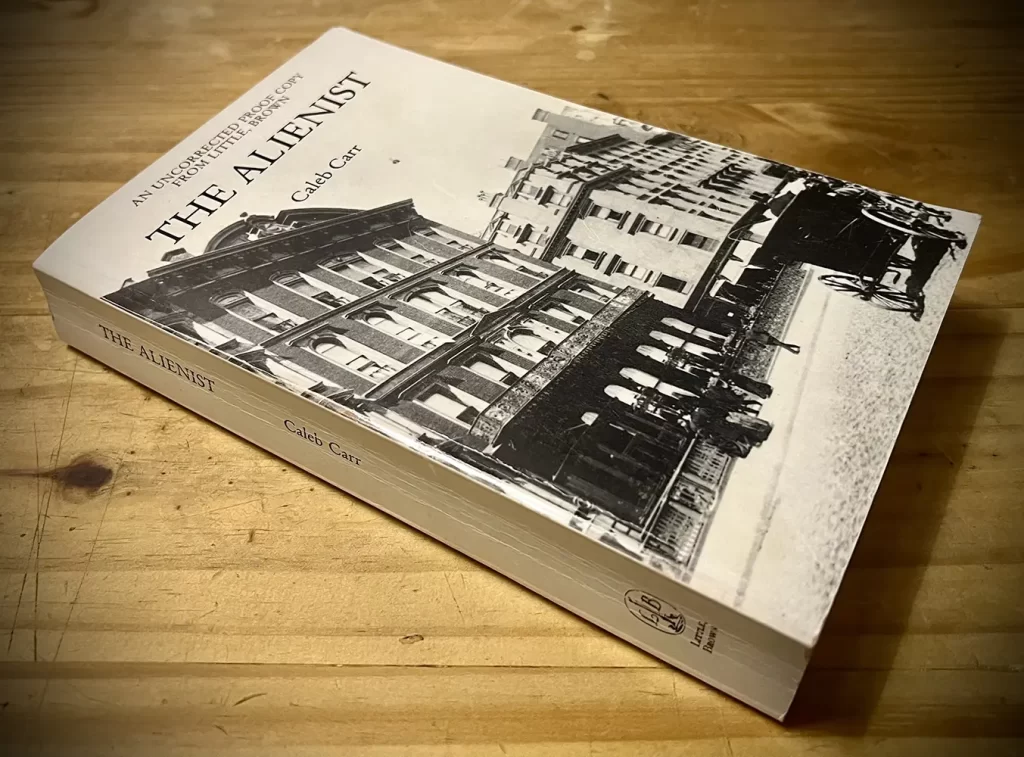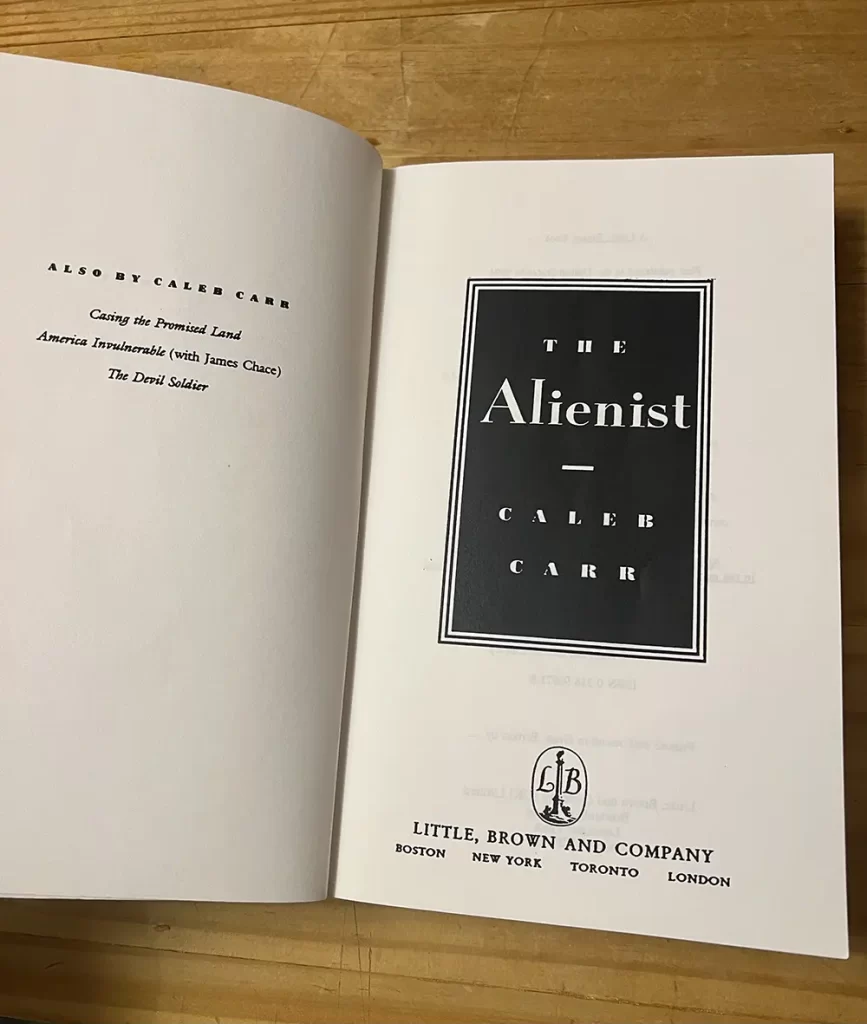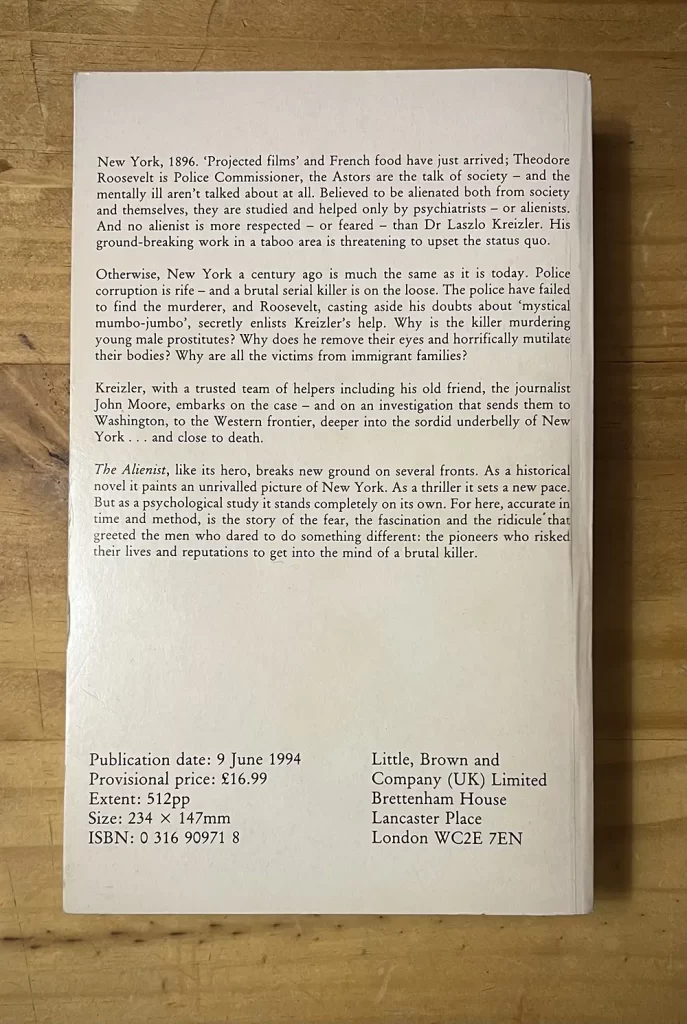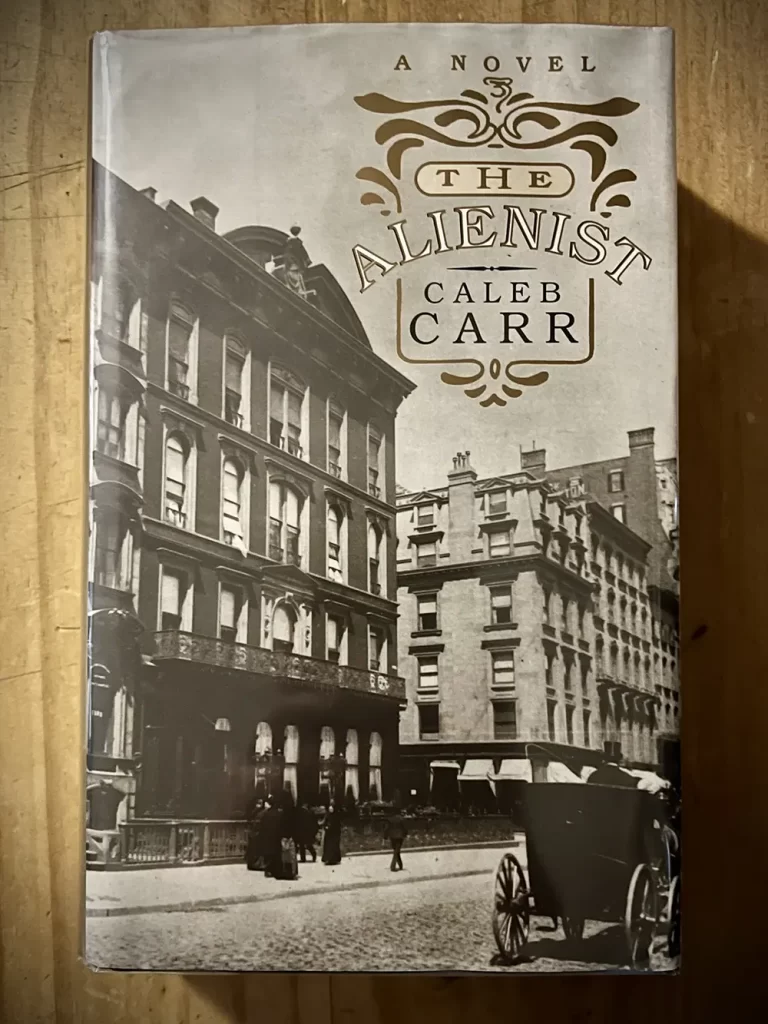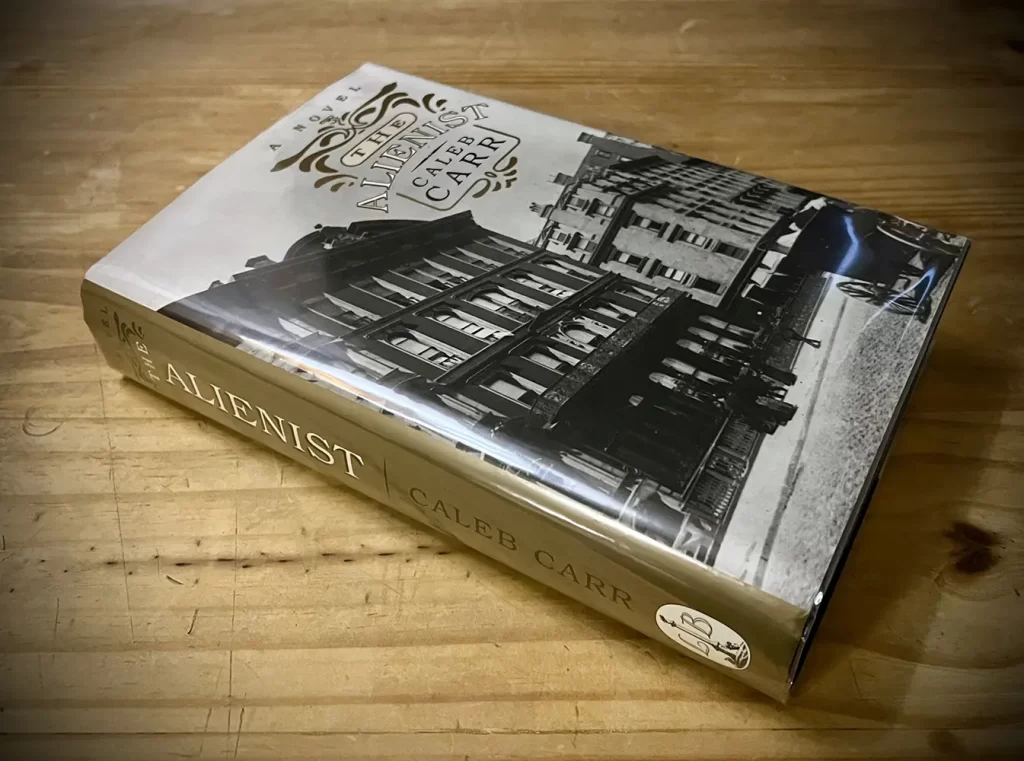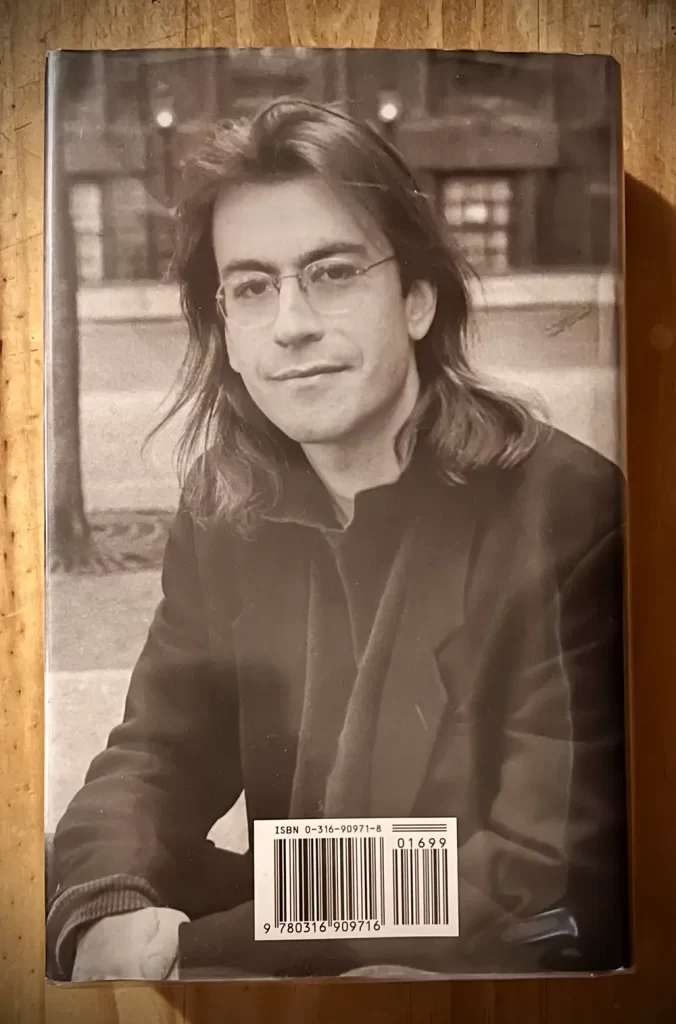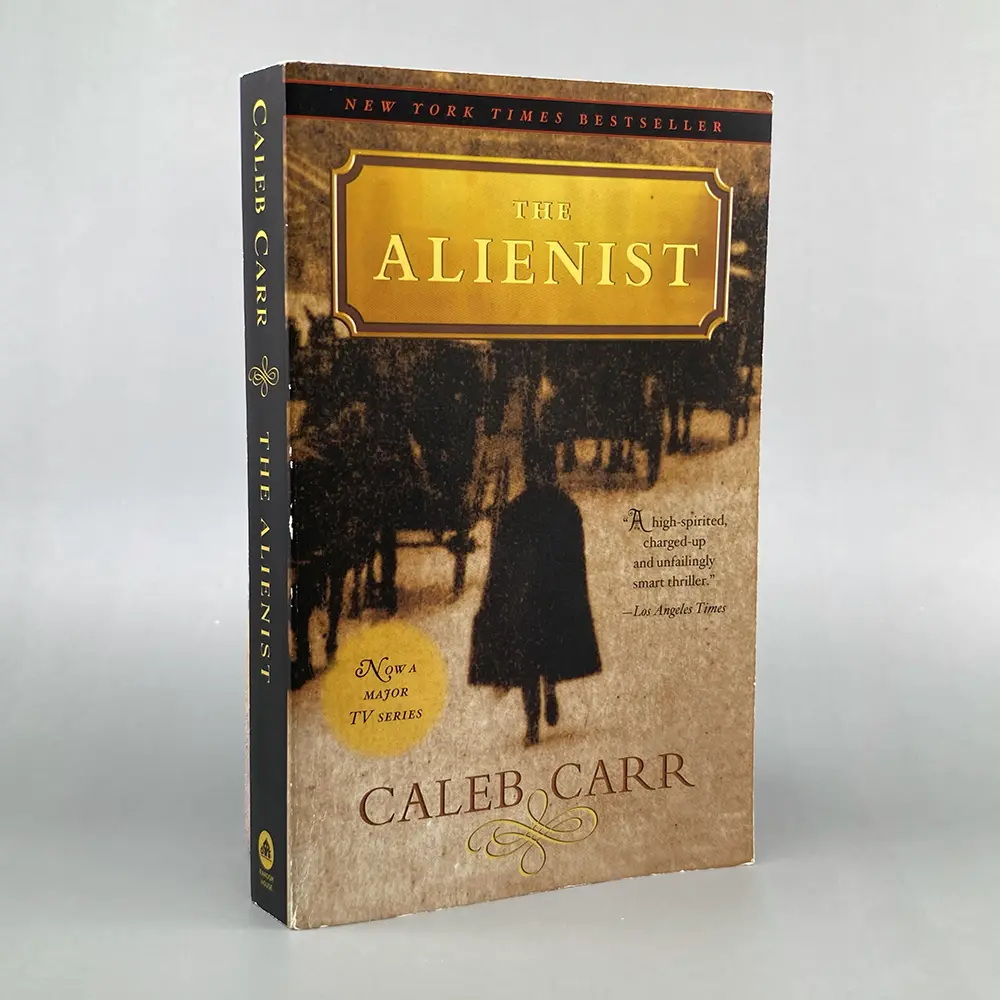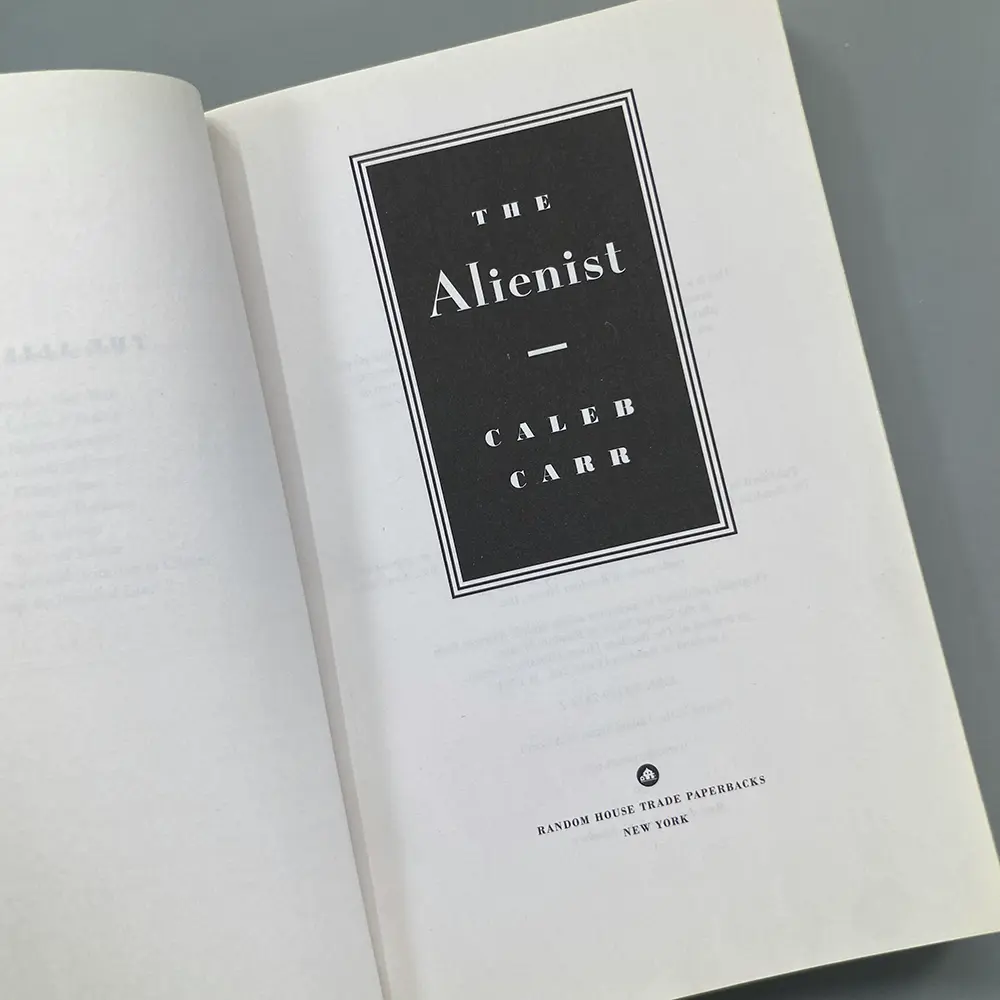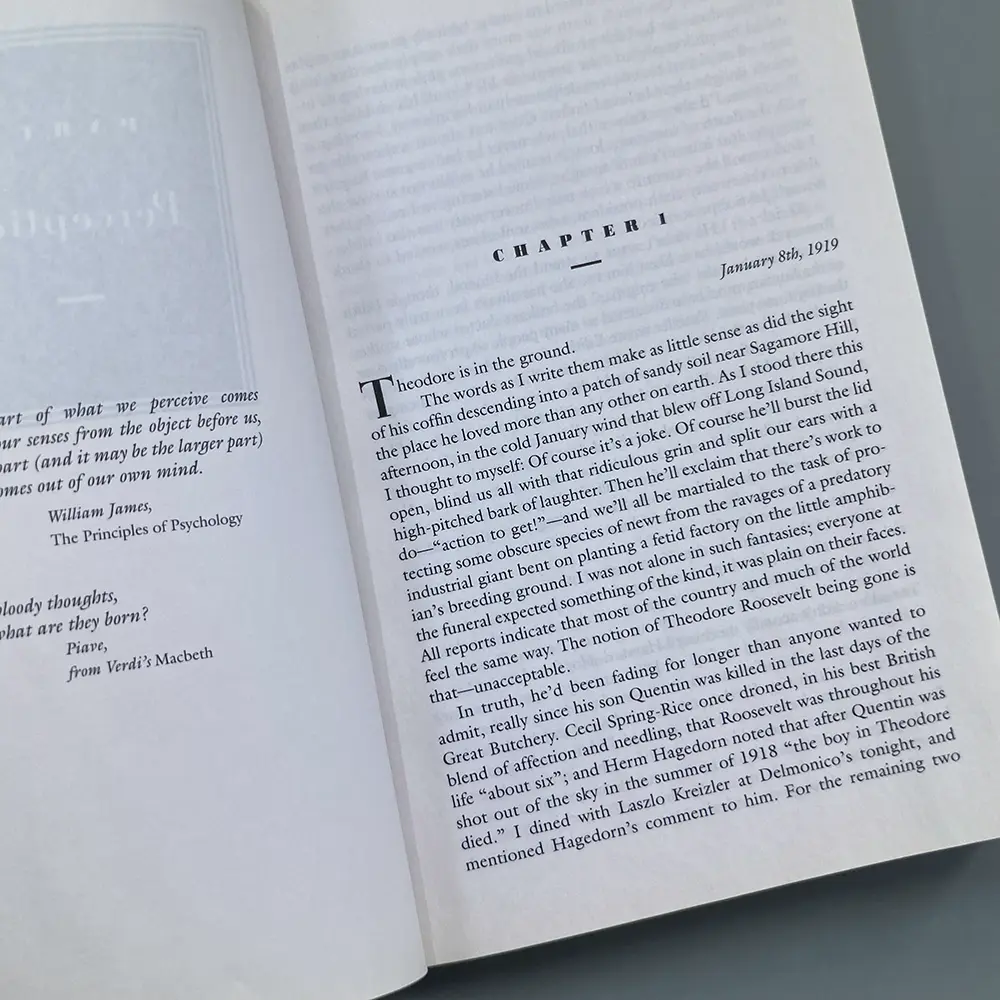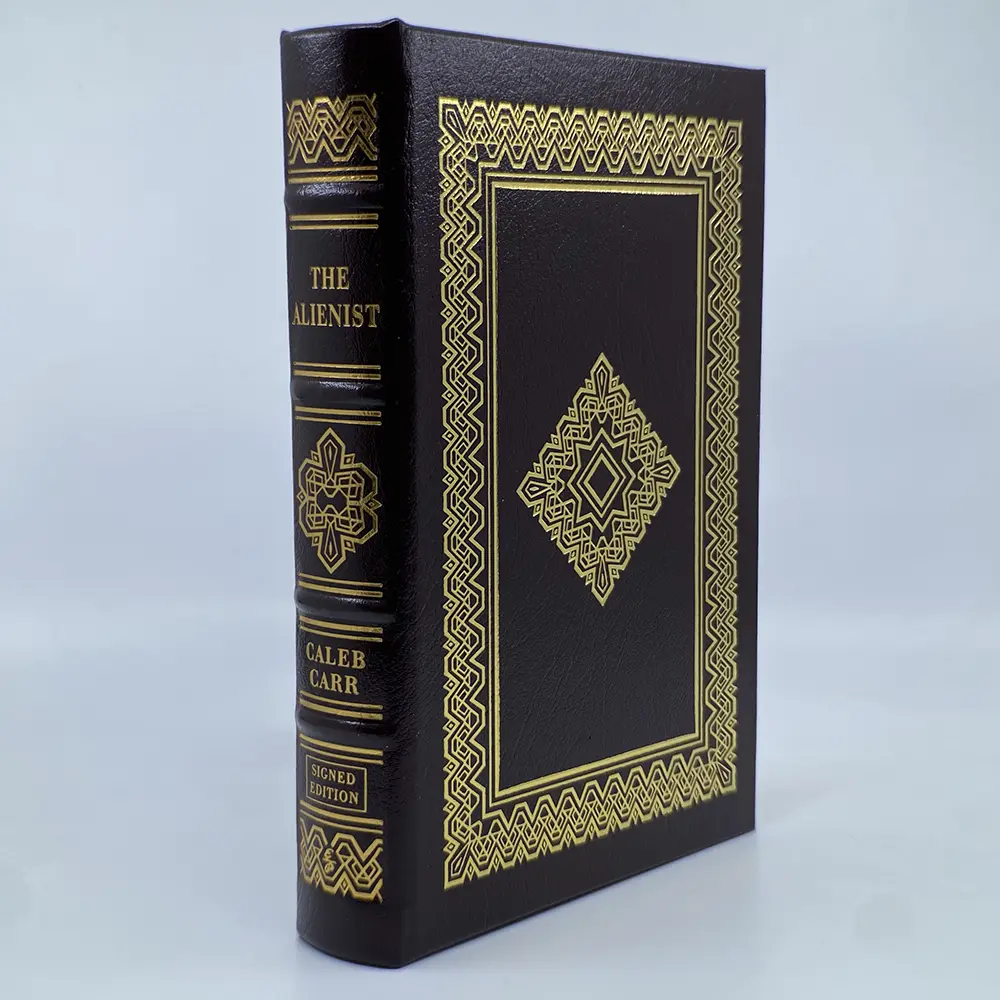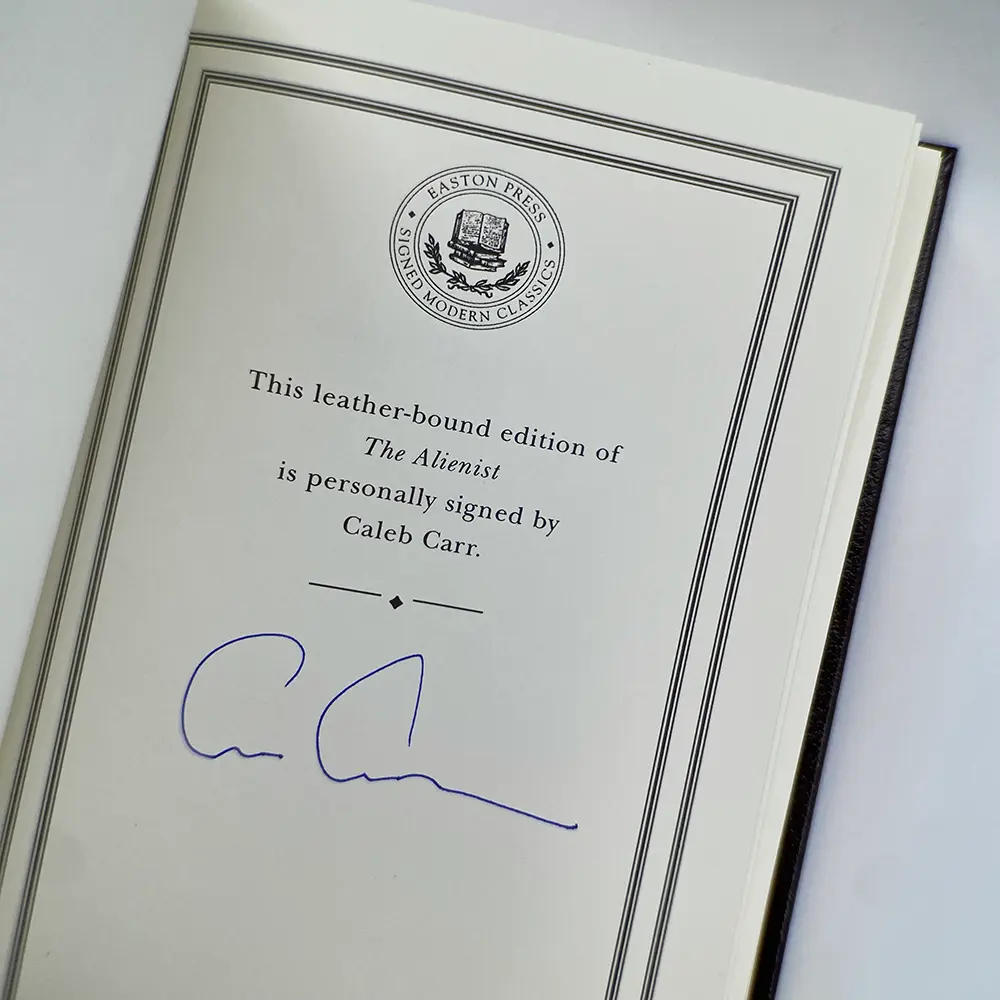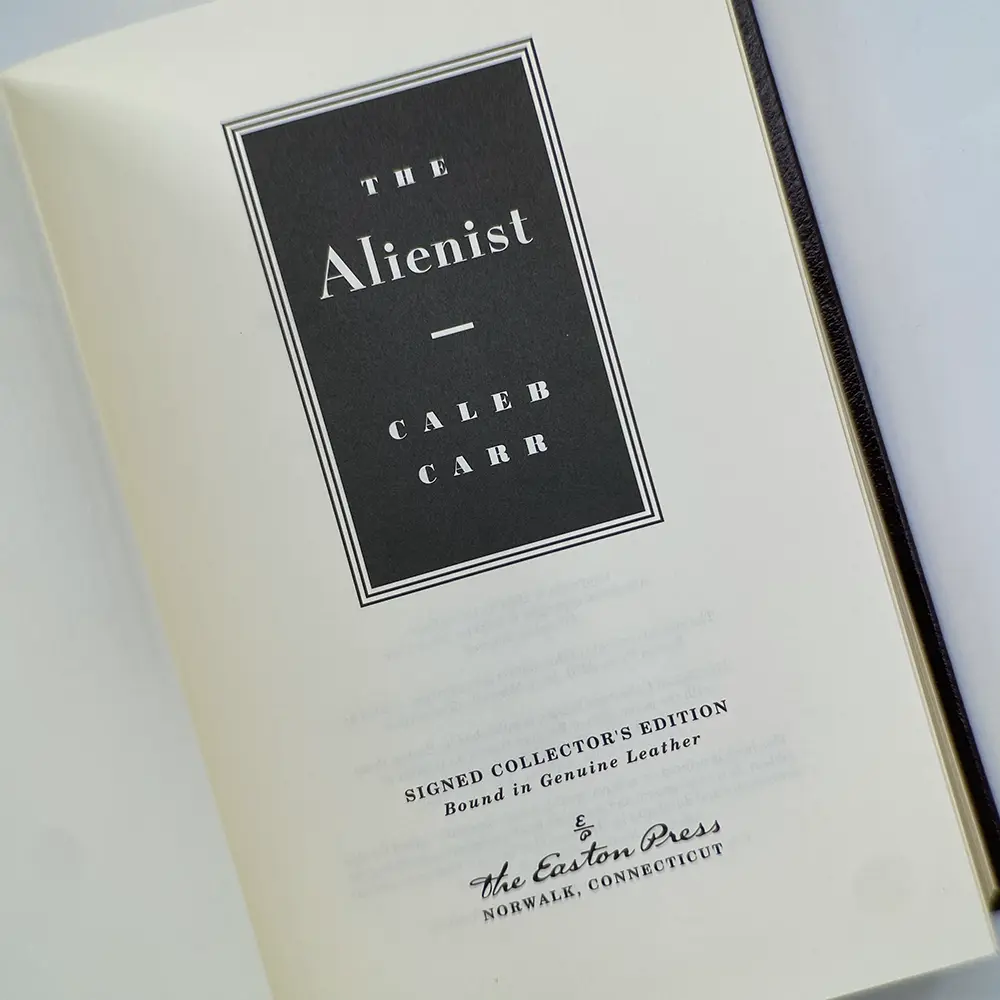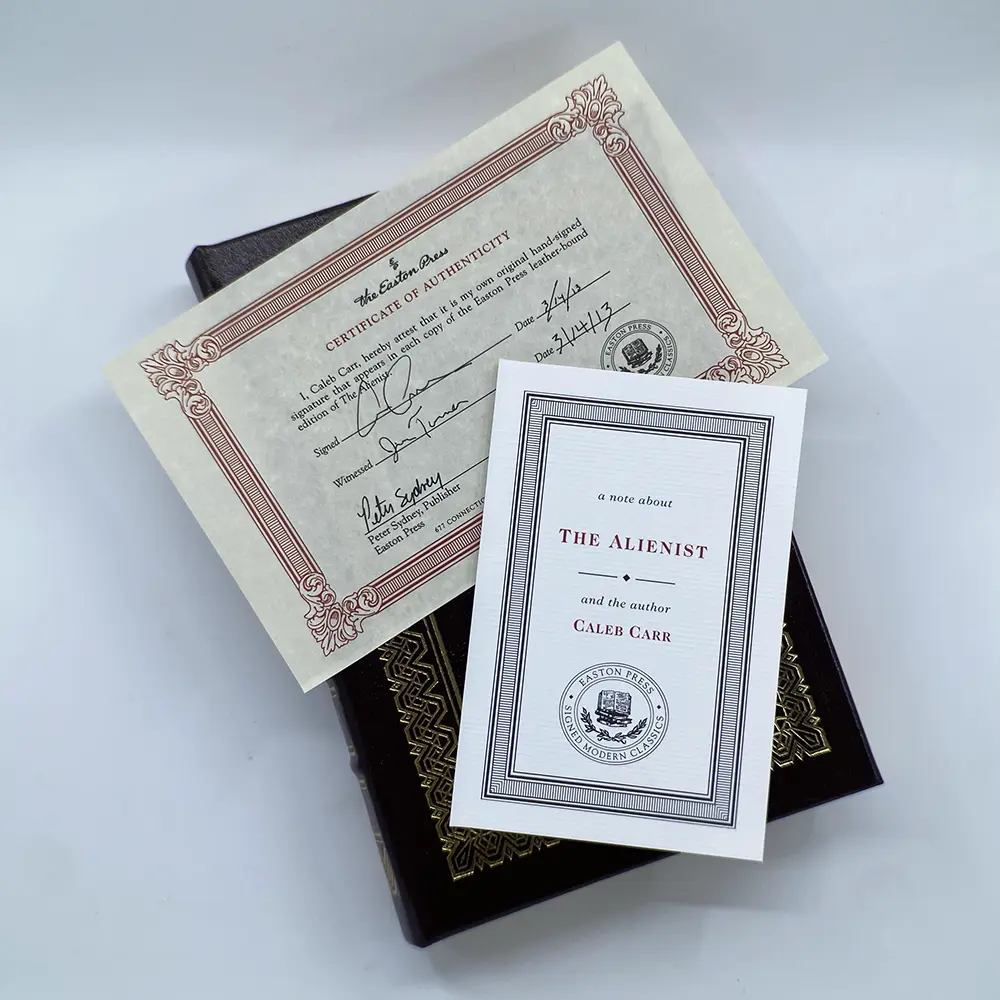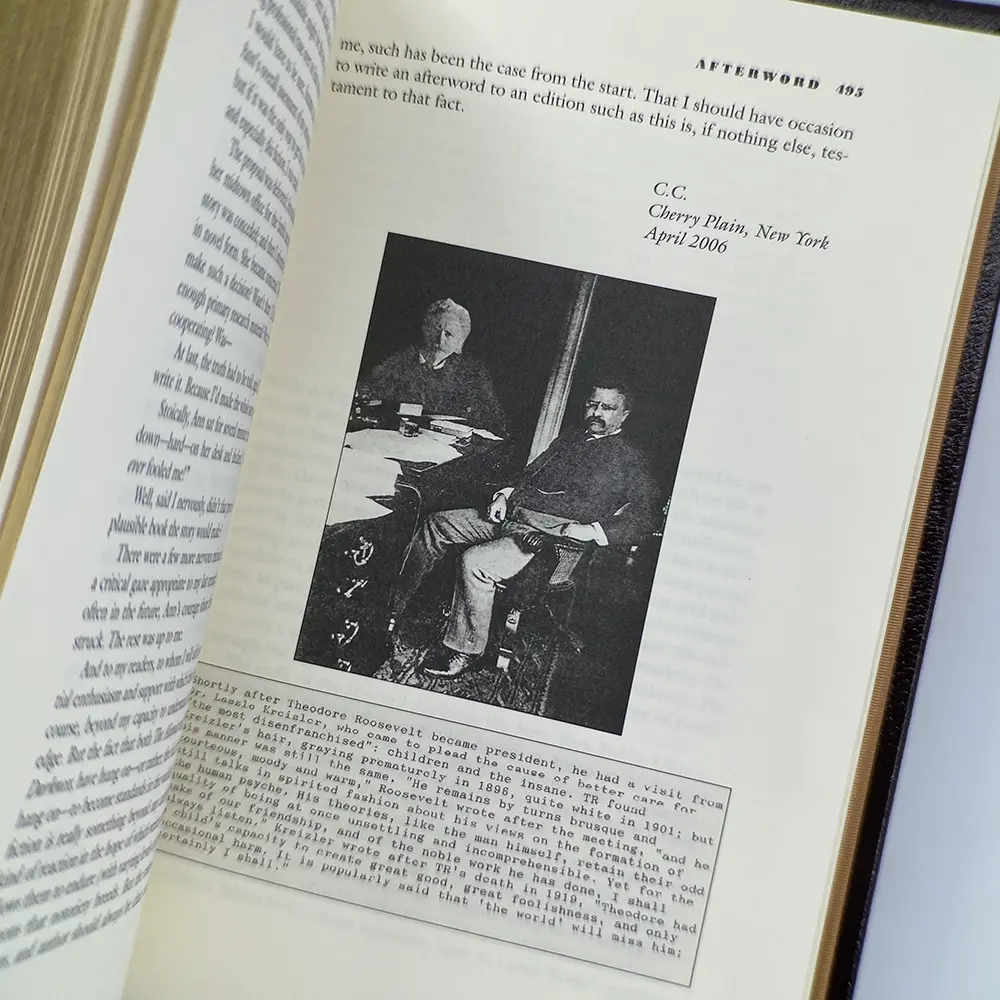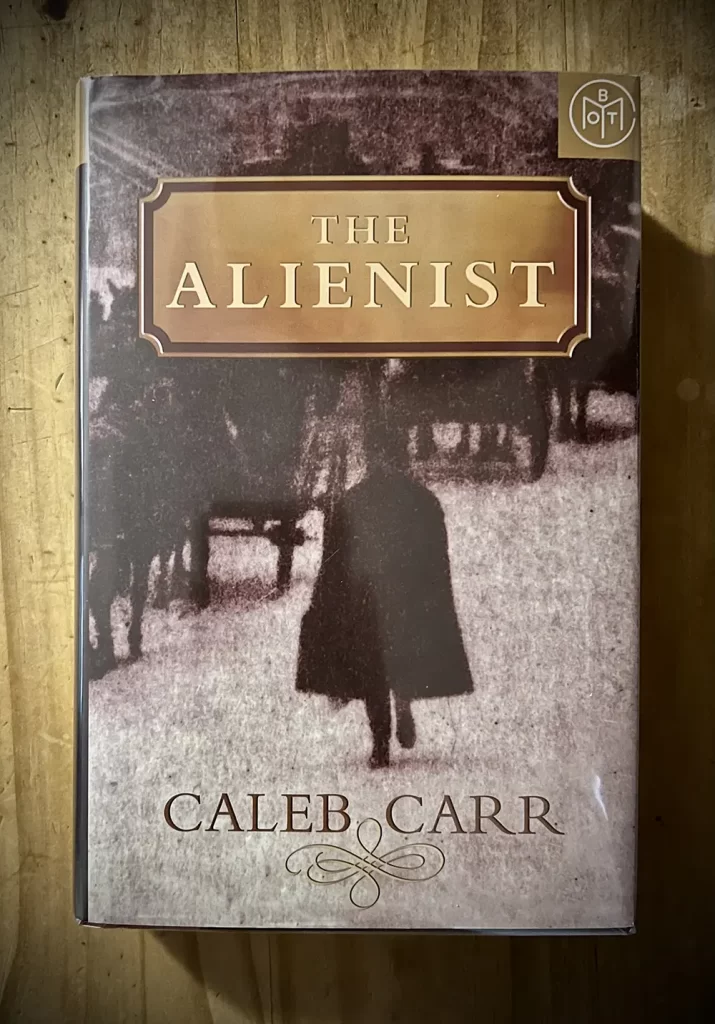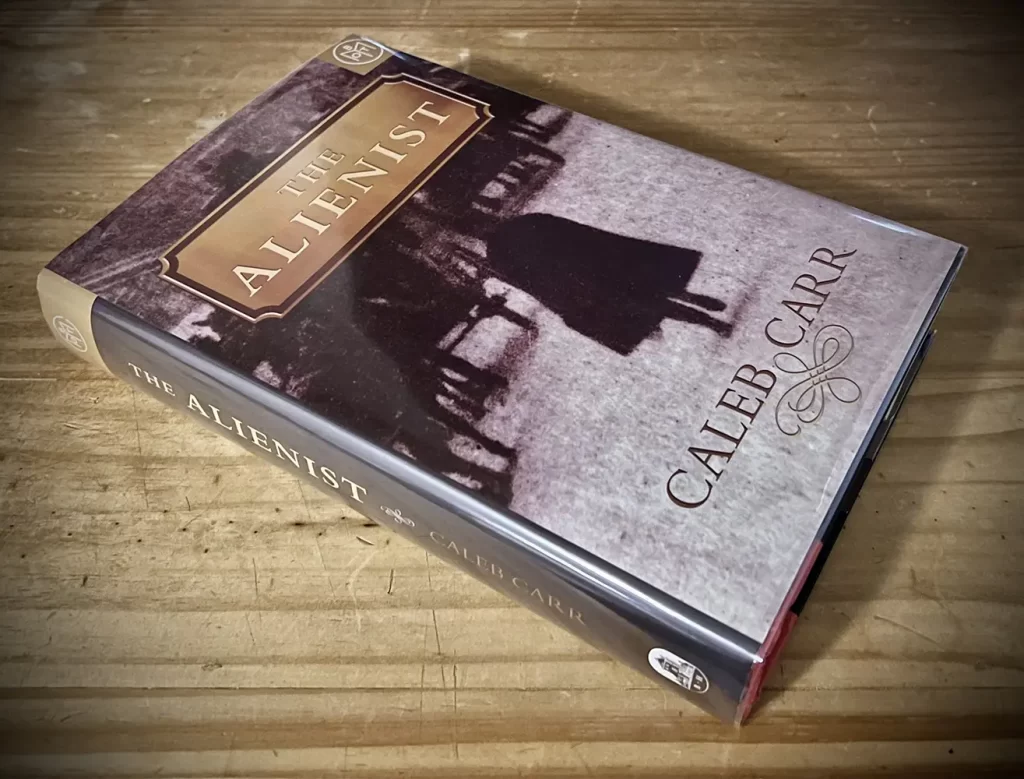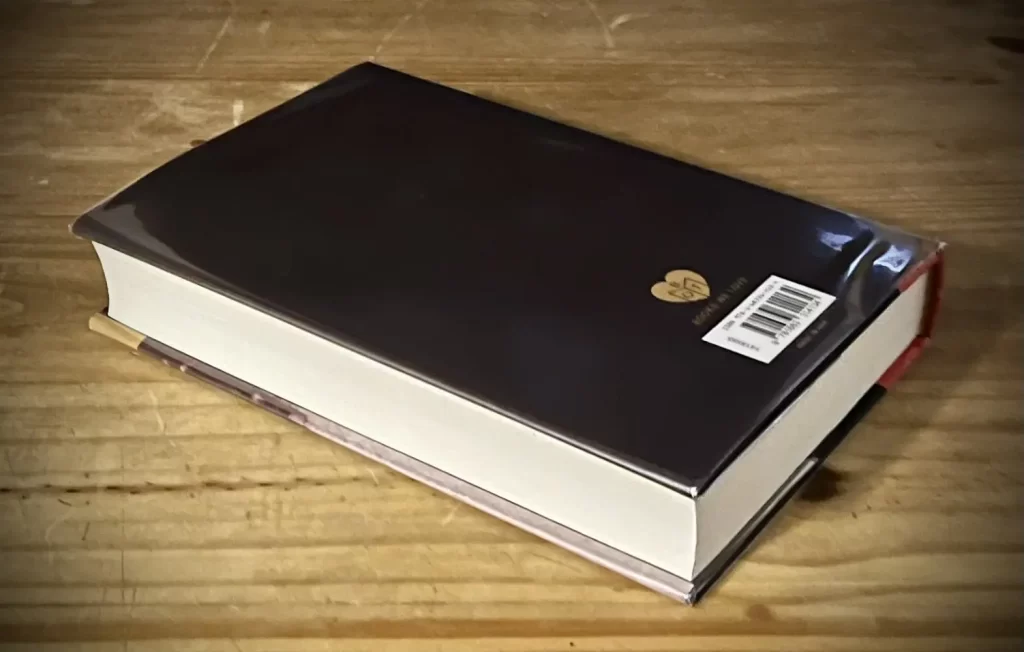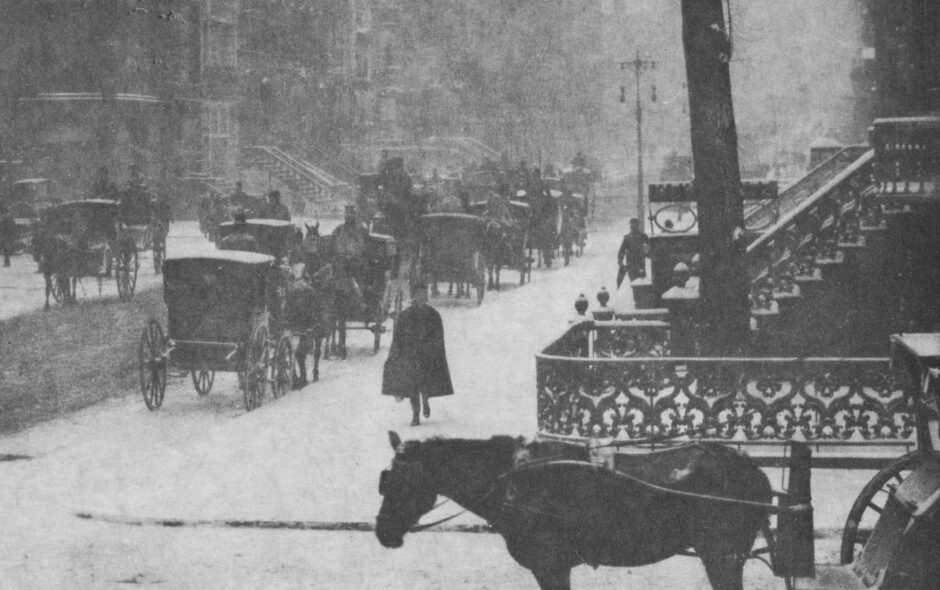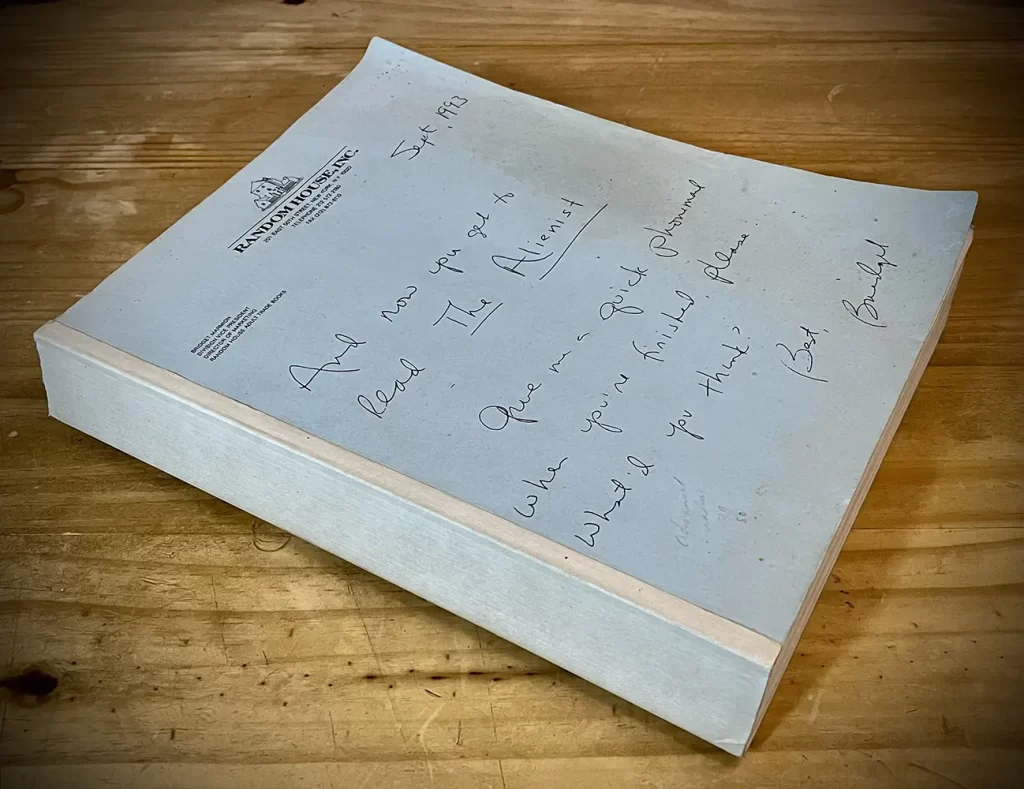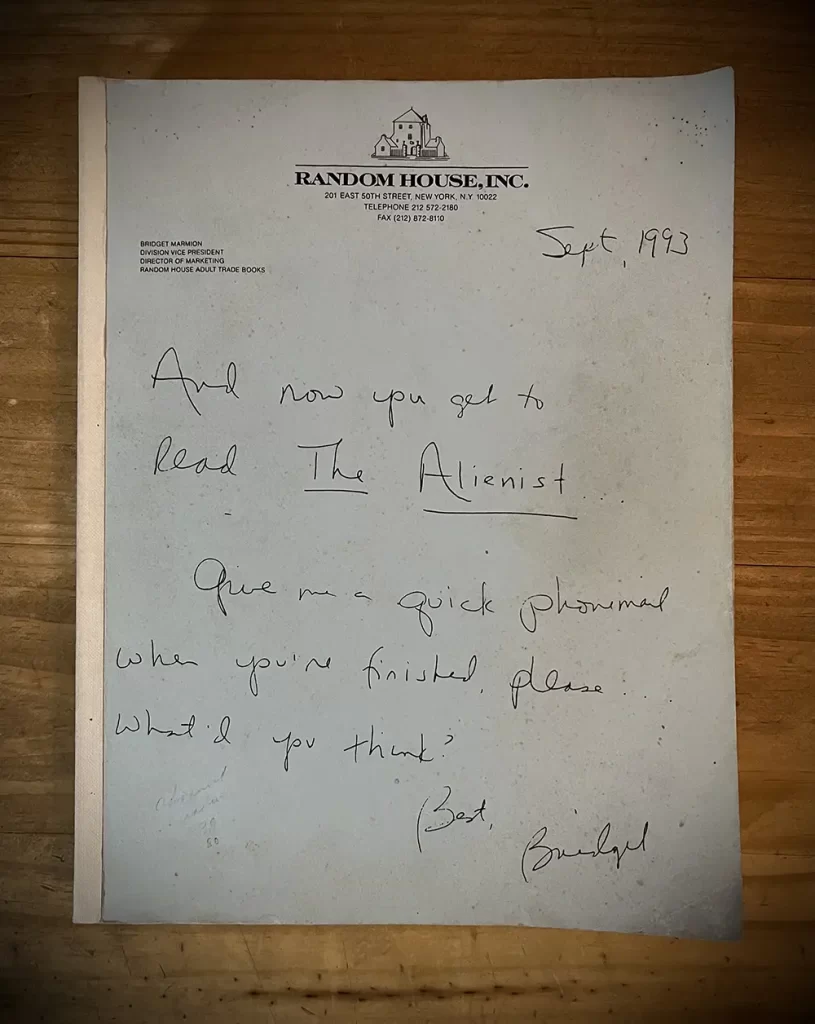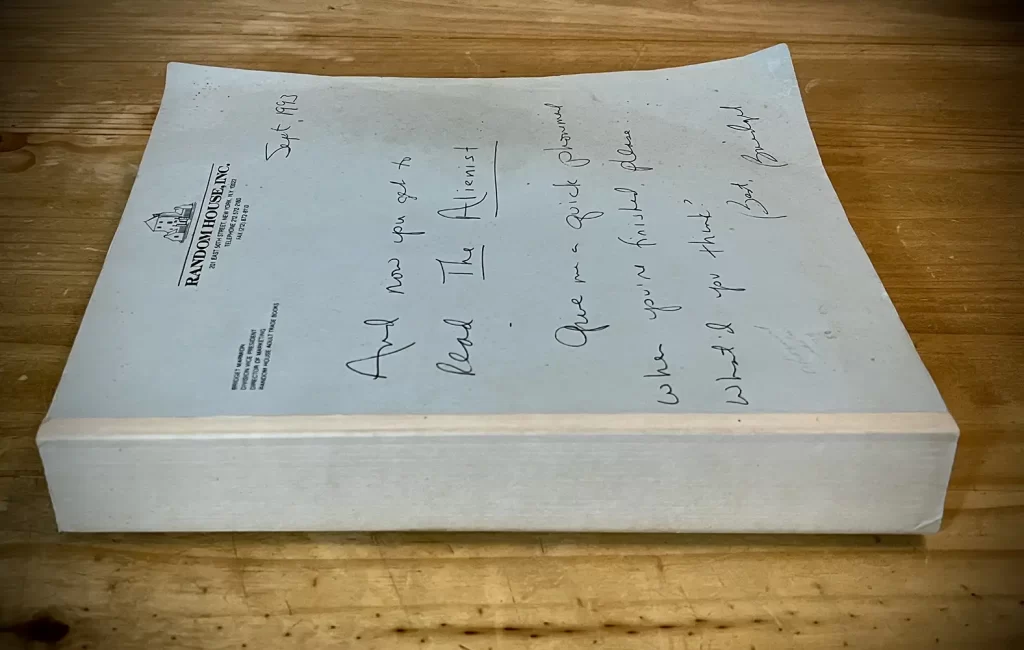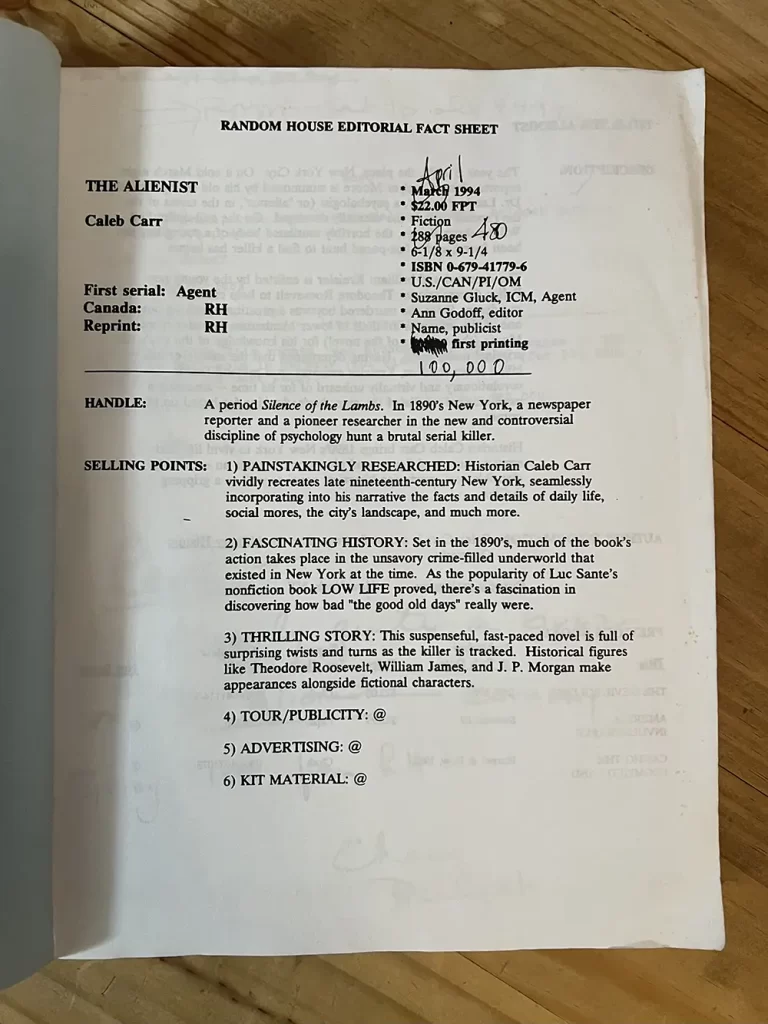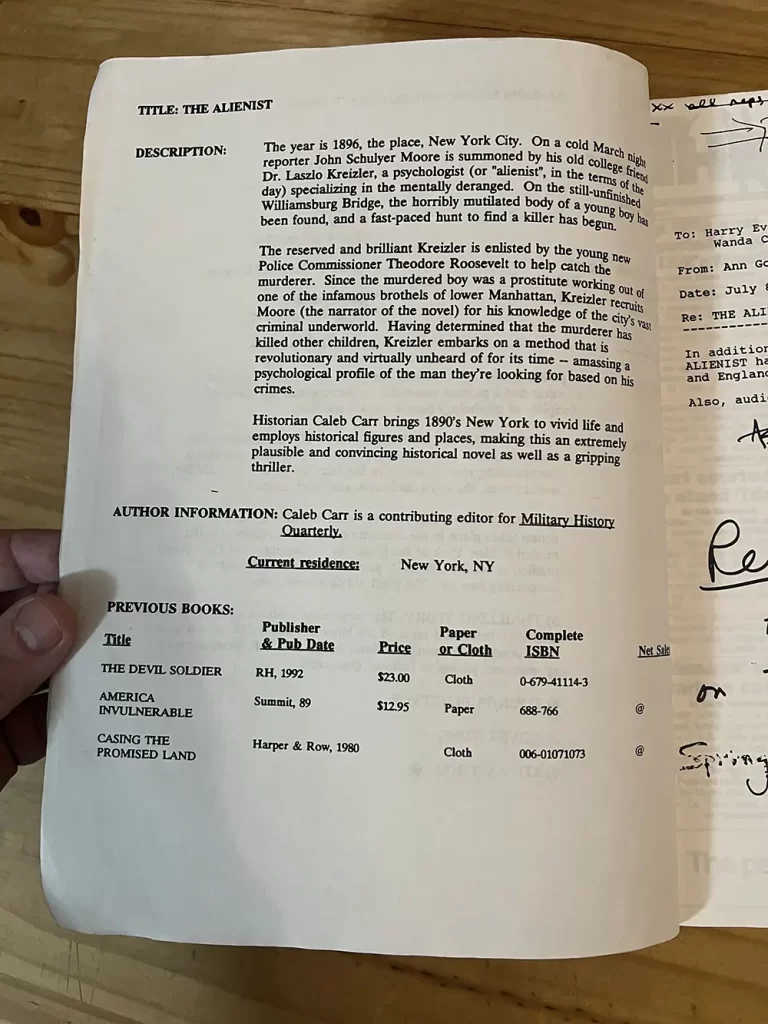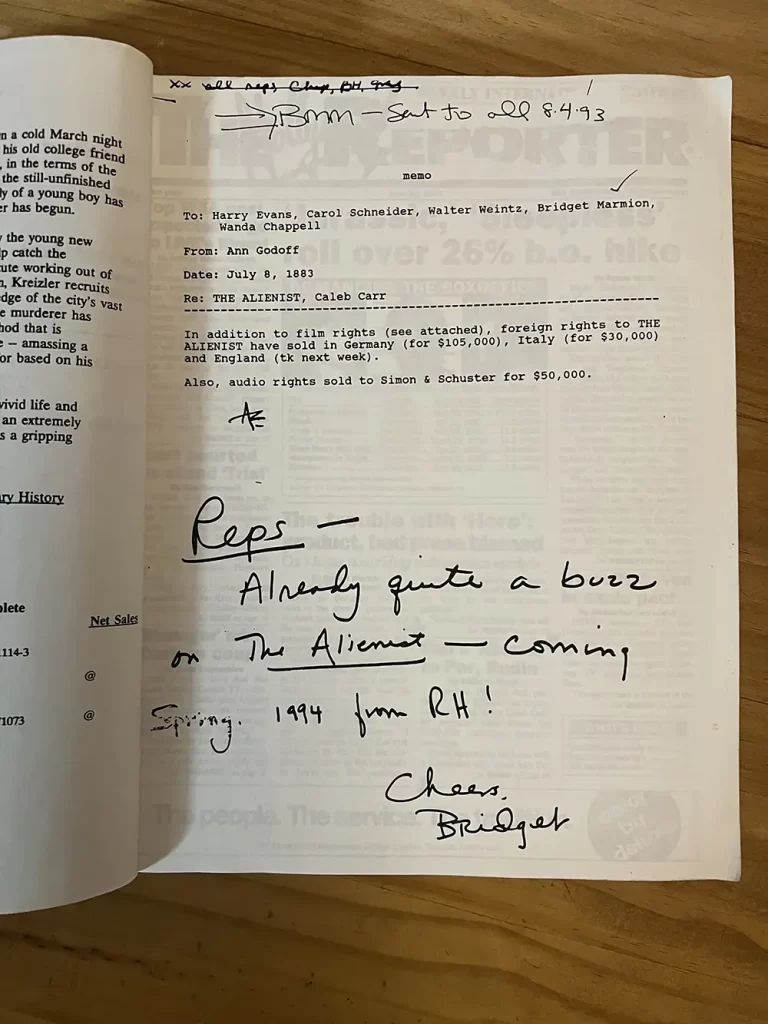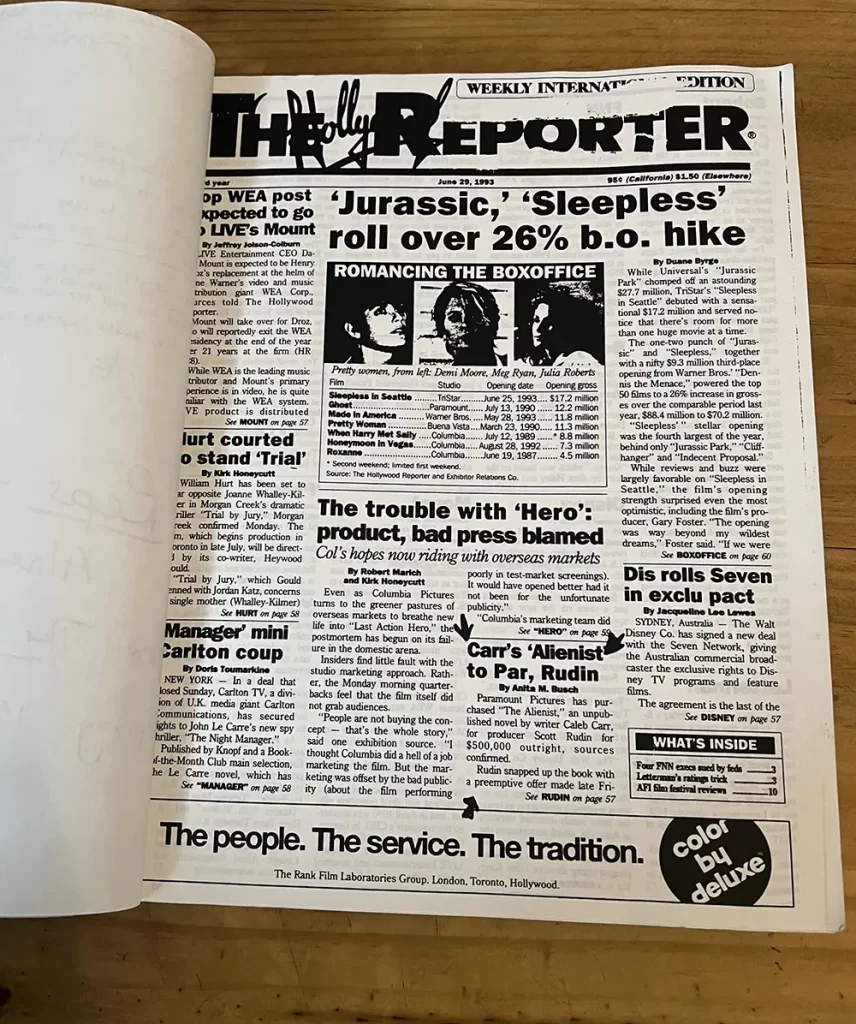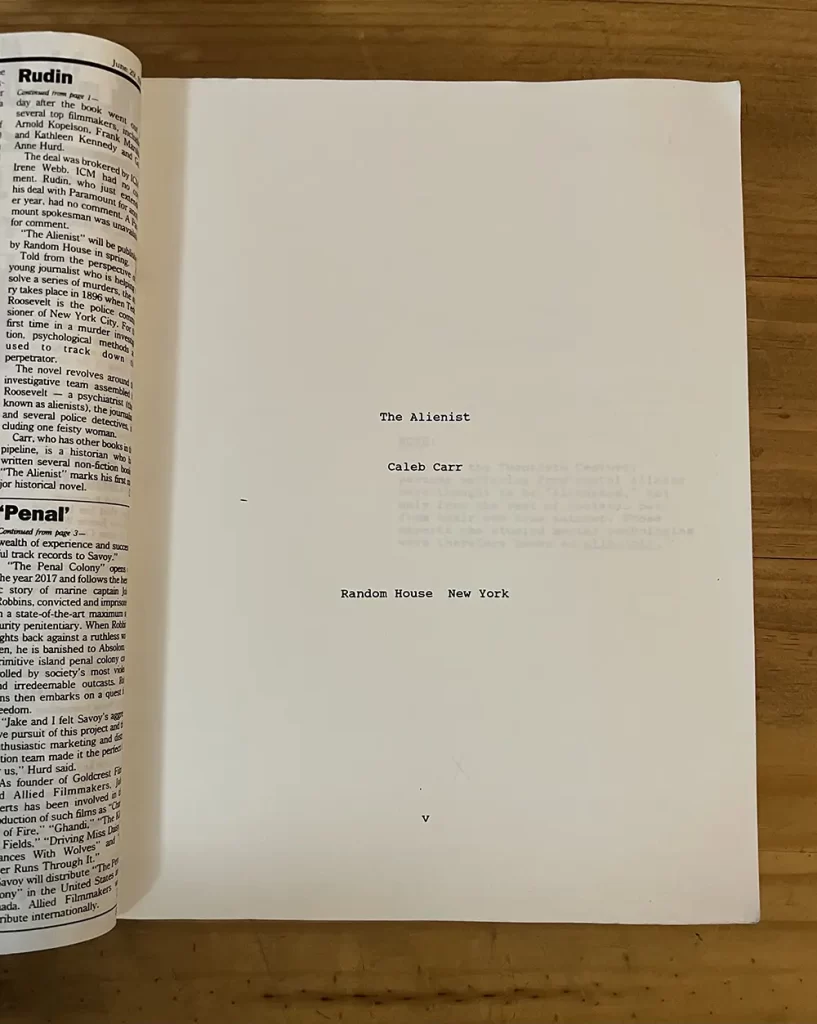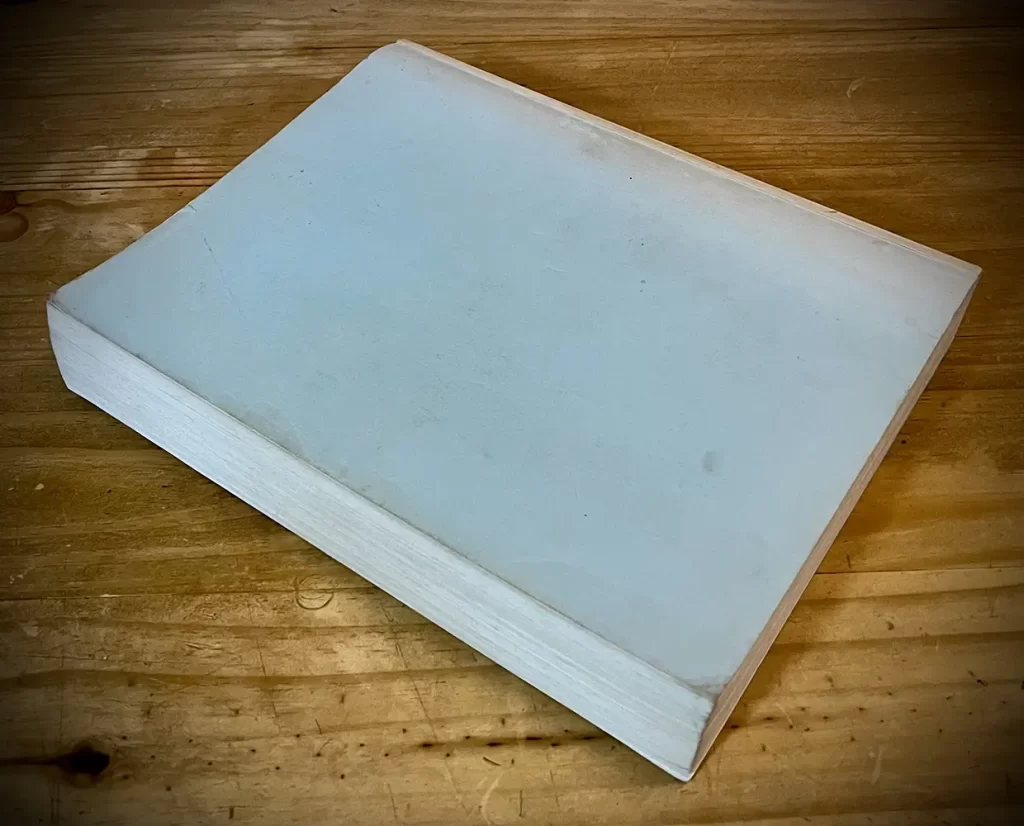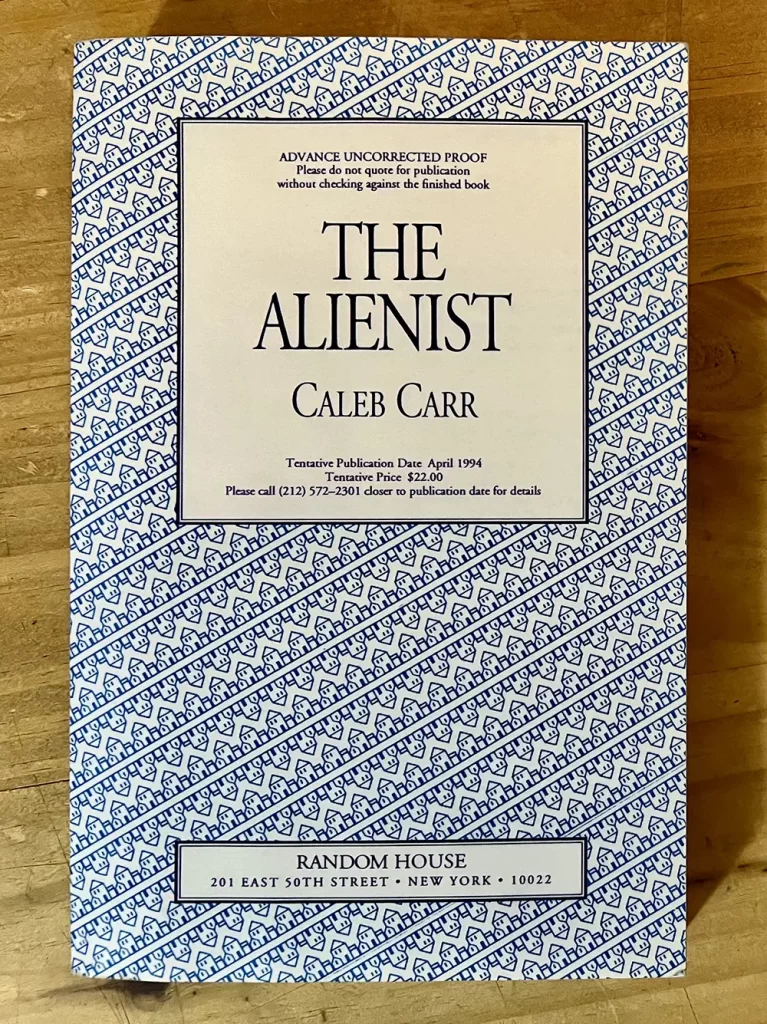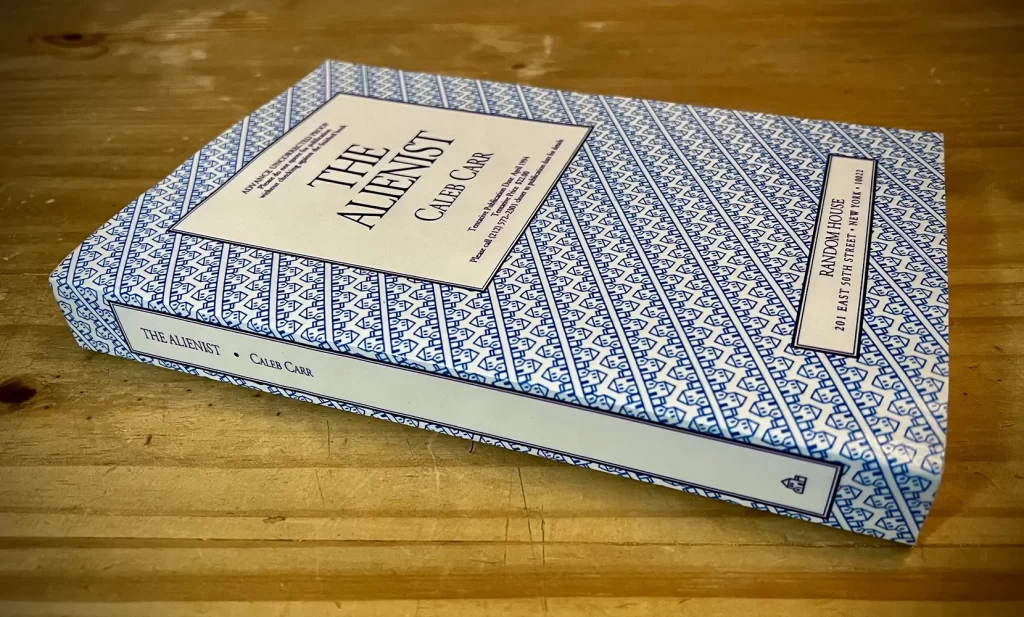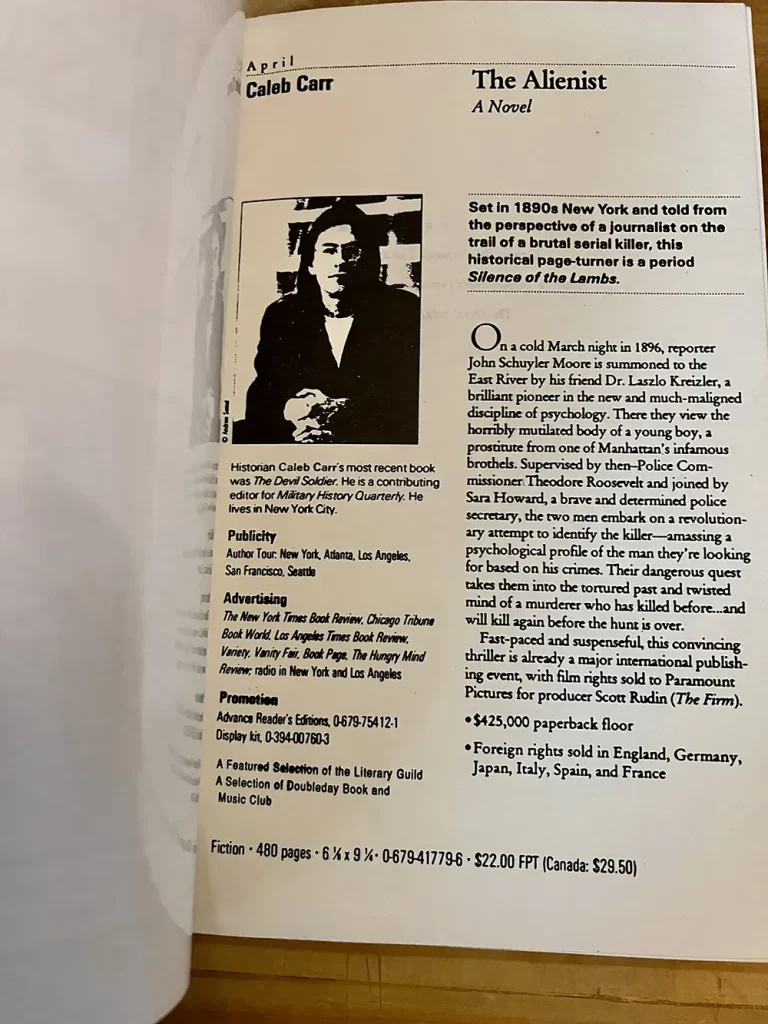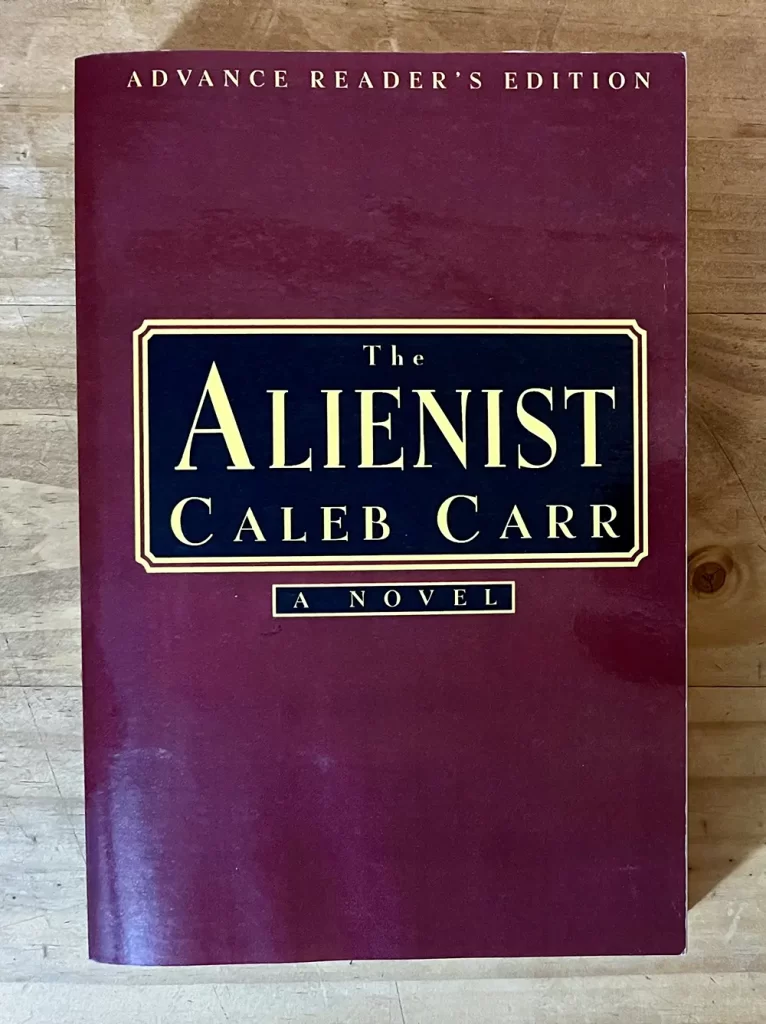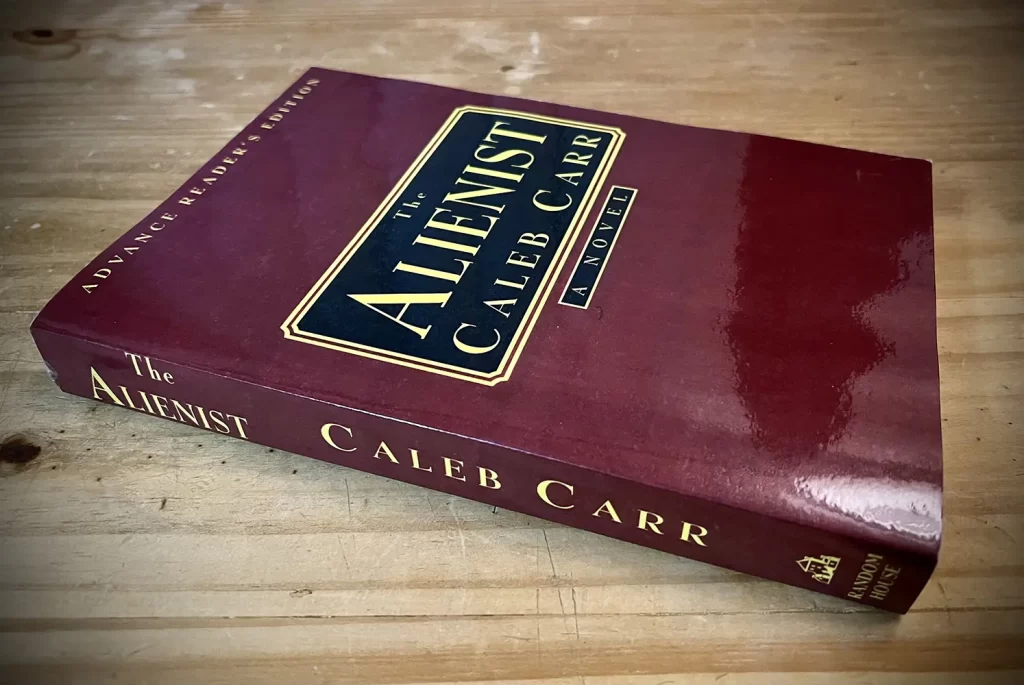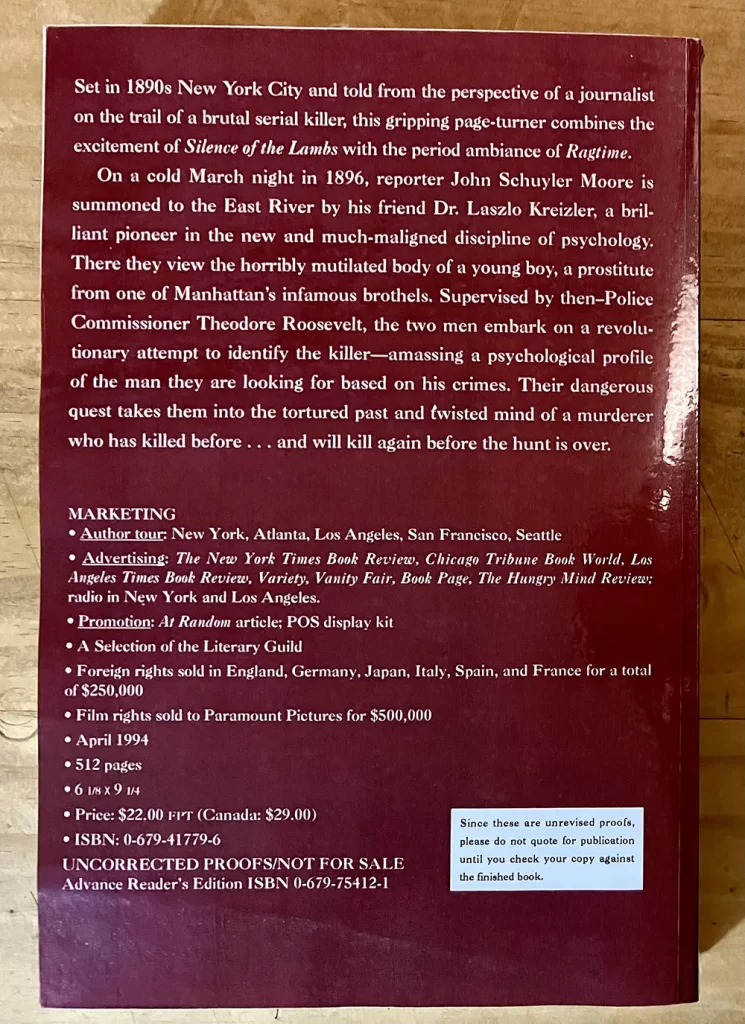To honor Caleb Carr’s birthday today, I am pleased to release the third post in our series commemorating the 30th anniversary of The Alienist’s publication. Having discussed the novel’s origins in Part One and its critical reception in Part Two, in this installment we return to Caleb’s first love — the screen — and a major source of buzz in the lead up to The Alienist’s publication: the promise of a movie adaptation. “You won’t find many writers who love movies as much as I do,” Caleb explained in an interview from 1997. “Movies formed much of the imagery that I use in my books.”
Thanks to a generous visitor to the website, in today’s post we glimpse a rare leather-bound copy of one of the first scripts developed for the book and learn about the challenges it faced making the leap to the screen.
Taking the story from page to screen
As described in Part One, The Alienist was the talk of Hollywood even before its publication. Soon after the manuscript was turned in to Random House in 1993, interest in purchasing the film rights was high, with names like Mike Nichols and Kathleen Kennedy looking at the project; however, it was Scott Rudin who made the winning bid of $500,000. Unfortunately, the excitement that followed was short lived. Caleb revealed in a 2013 New York Times book club chat that he ultimately came to wish he hadn’t listened to his agents’ advice on proceeding with the sale:
“What originally happened was that Mike Nichols had wanted to buy the book; but he was outbid, for reasons of professional competitiveness, by producer Scott Rudin, and how I wish I hadn’t listened to my agents. Rudin promised me I could write the script, then immediately reneged on that pledge and told me that there was “no movie in the Alienist.” He spent many years and millions of dollars on writers and directors who turned in one lousy script after another, which I was fortunate enough to be able to stop, incurring Rudin’s well-known wrath. He has now repeatedly said that there will never be a film of the movie, and although that decision is the studio’s, not his, he spent so much money on development that no one can afford the turnaround.”
The saga of the scripts
The script problems Caleb referenced go back to the very beginning. According to an article in the Los Angeles Times from 1995, the first of the scripts to be rejected was written by Tony-award winning playwright David Henry Hwang, who turned in a draft that “diverged too radically from the novel, focusing on a minor female character.” A second script, this time written by Steven Katz (Shadow of the Vampire, The Knick, and uncredited for work on Interview with the Vampire), was “considered too slavish to the original source material.” Even so, it appears this was a version Rudin had hopes for.
To entice studio executives into paying attention to the project, it was revealed in July of 1995 that Rudin made the unusual decision to arrange for copies of the script to bound in a special leather volume. Illustrated with period photographs and artwork of late 19th century New York, these copies were truly beautiful, as you can see below.
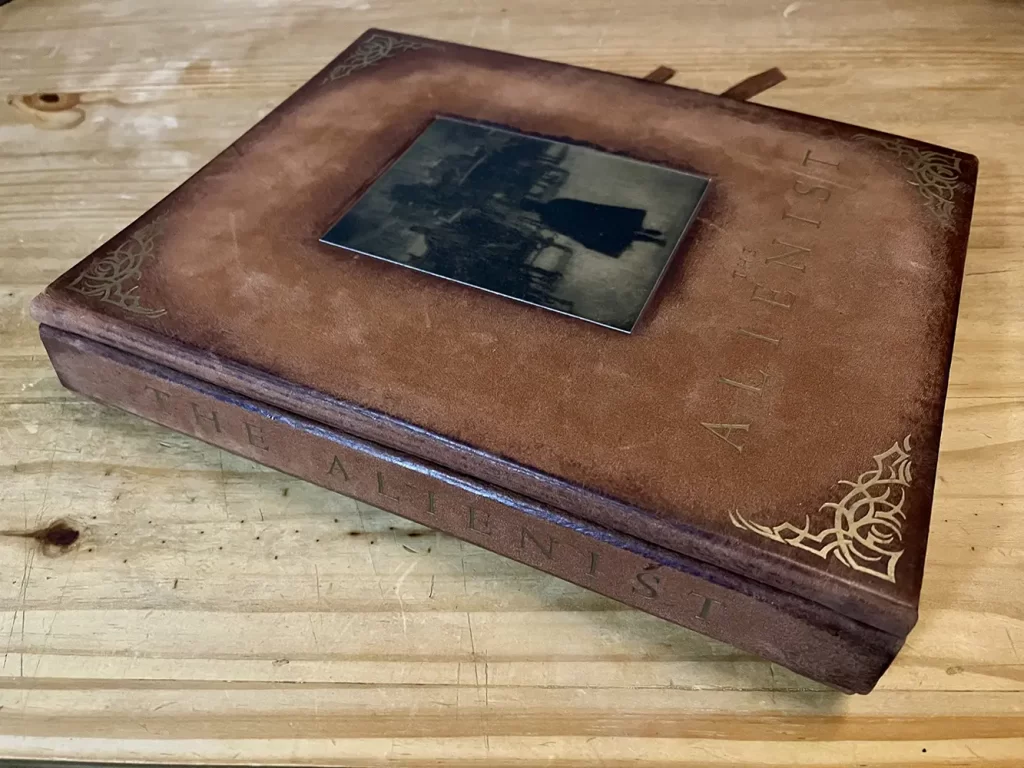
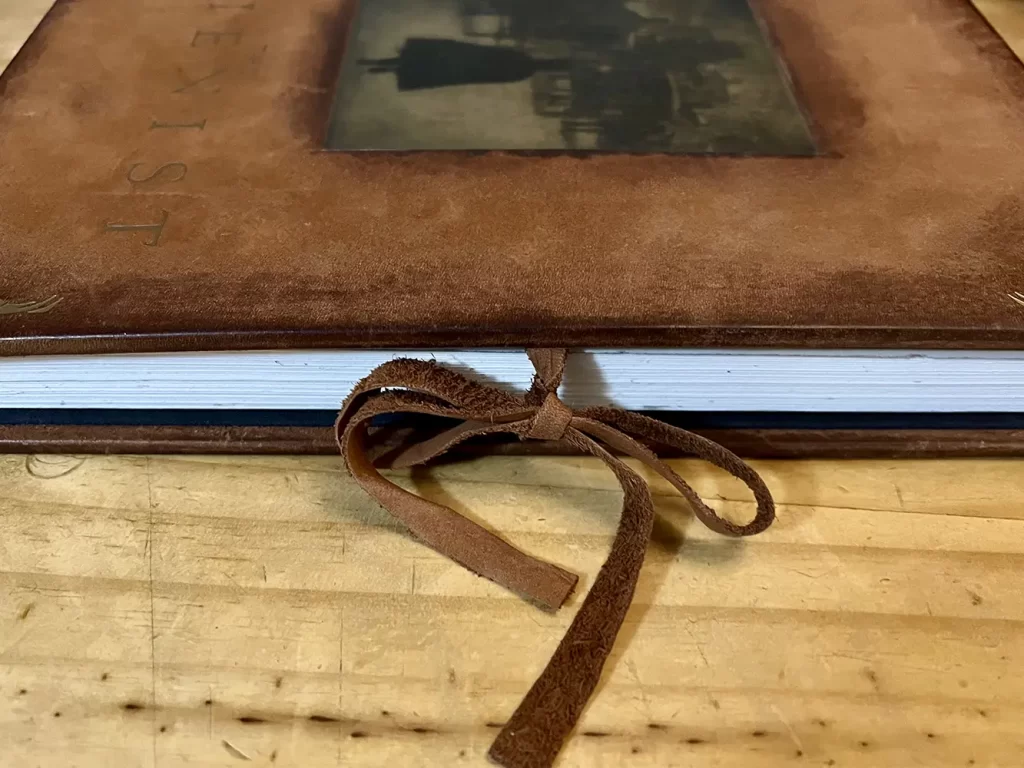
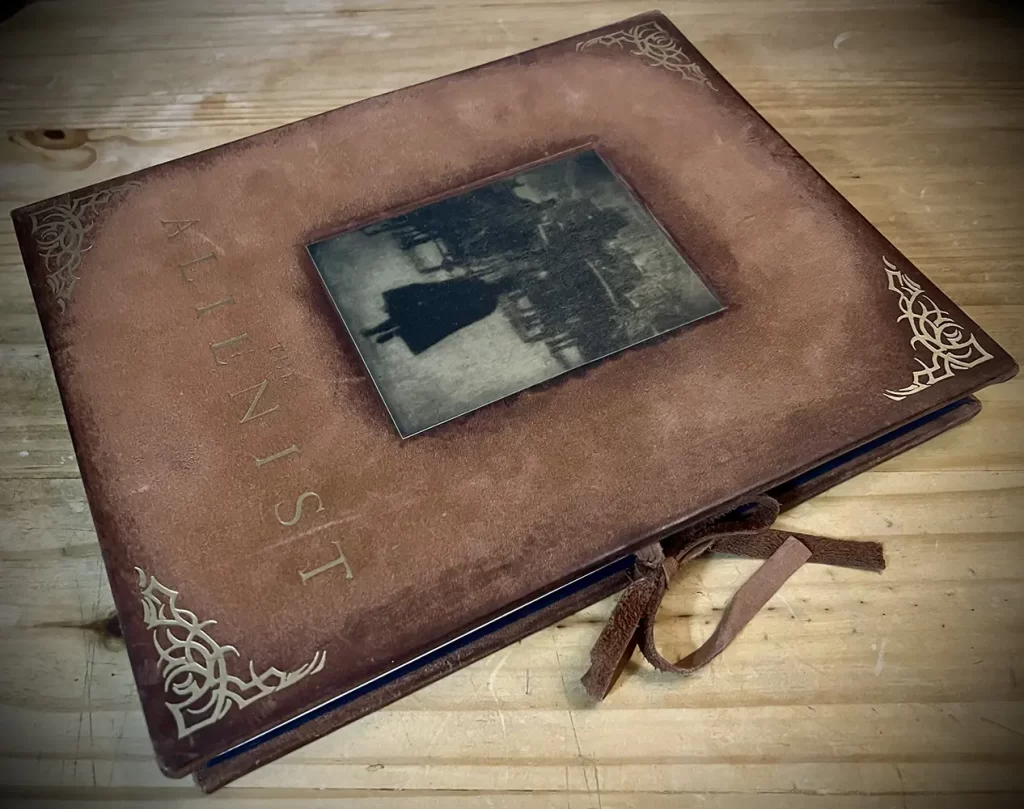
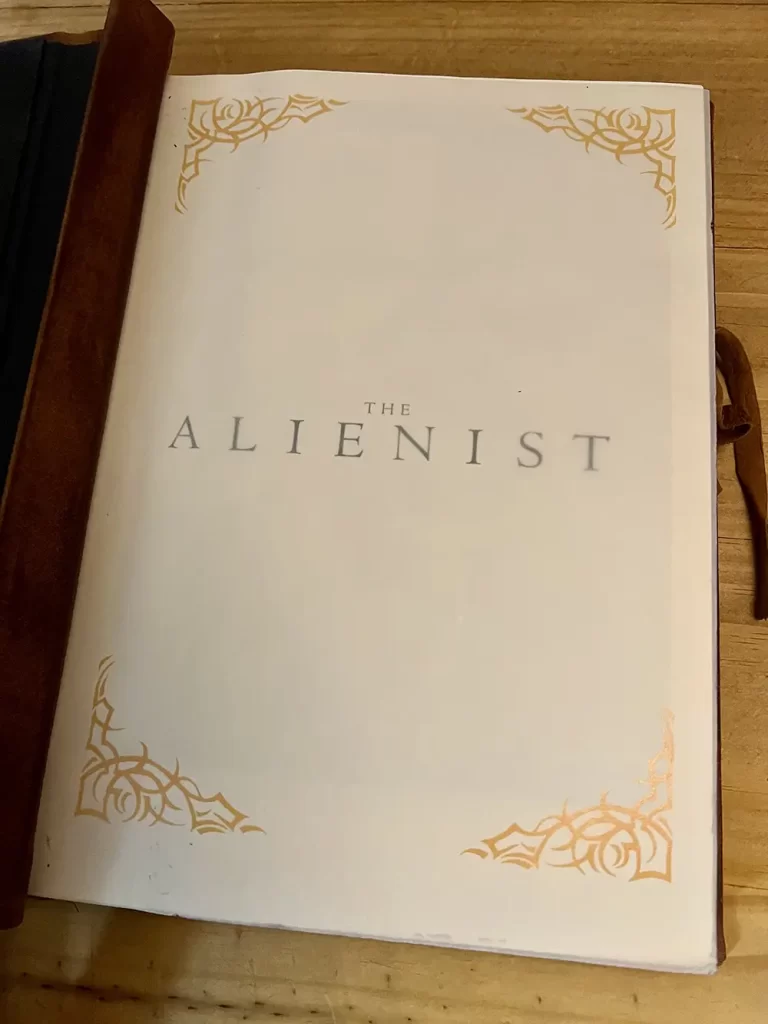
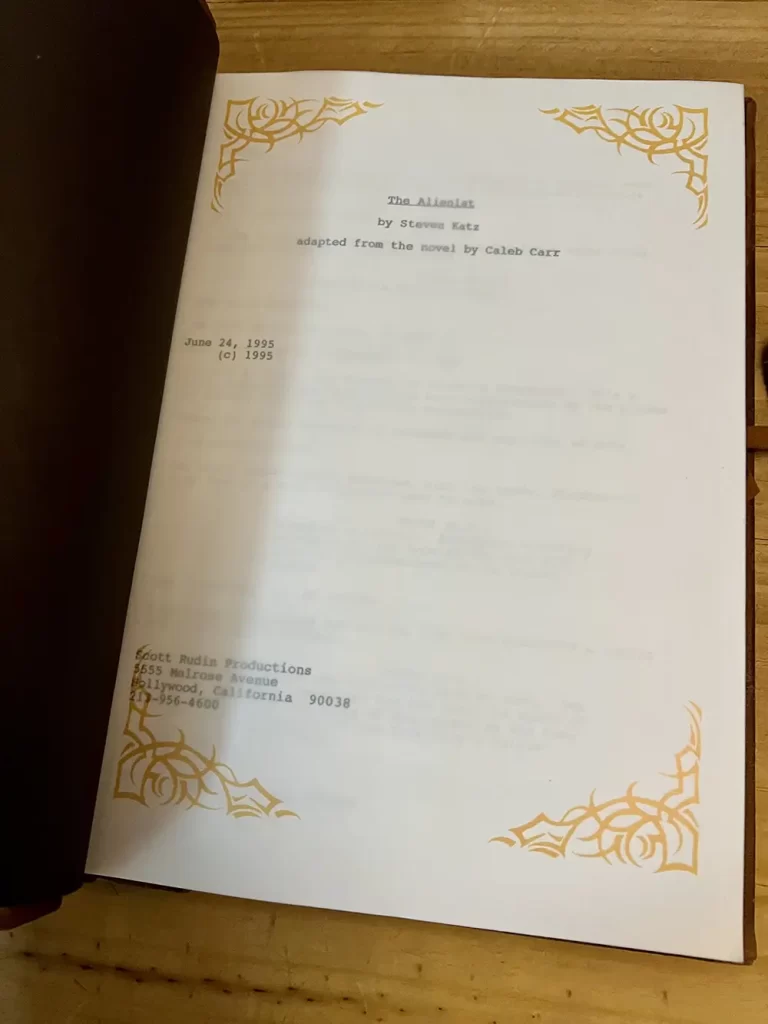
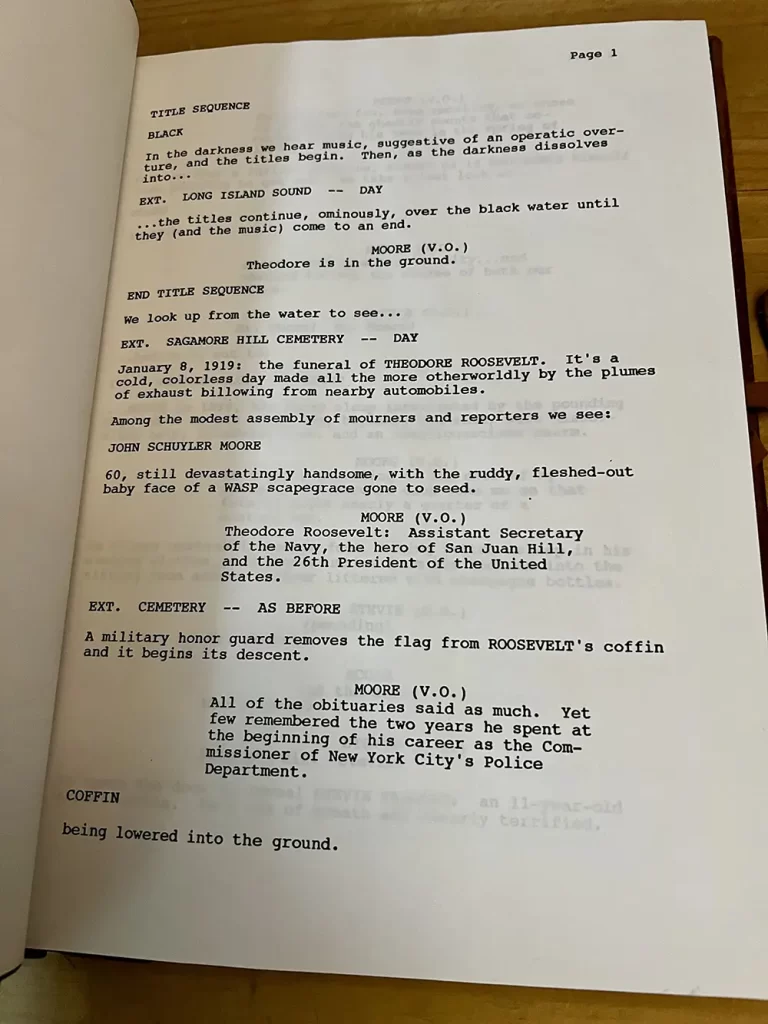
We were lucky to have photographs of one of these volumes provided by a kind visitor to the site, Steve Rogers, who described it in the following terms: “The pictures do not do justice to the book in your hands. The quality is excellent, the translucent gilded paper over title pages, soft leather, the ties, binding, the period pictures to give a feel of what life was like during that era, so much more.”
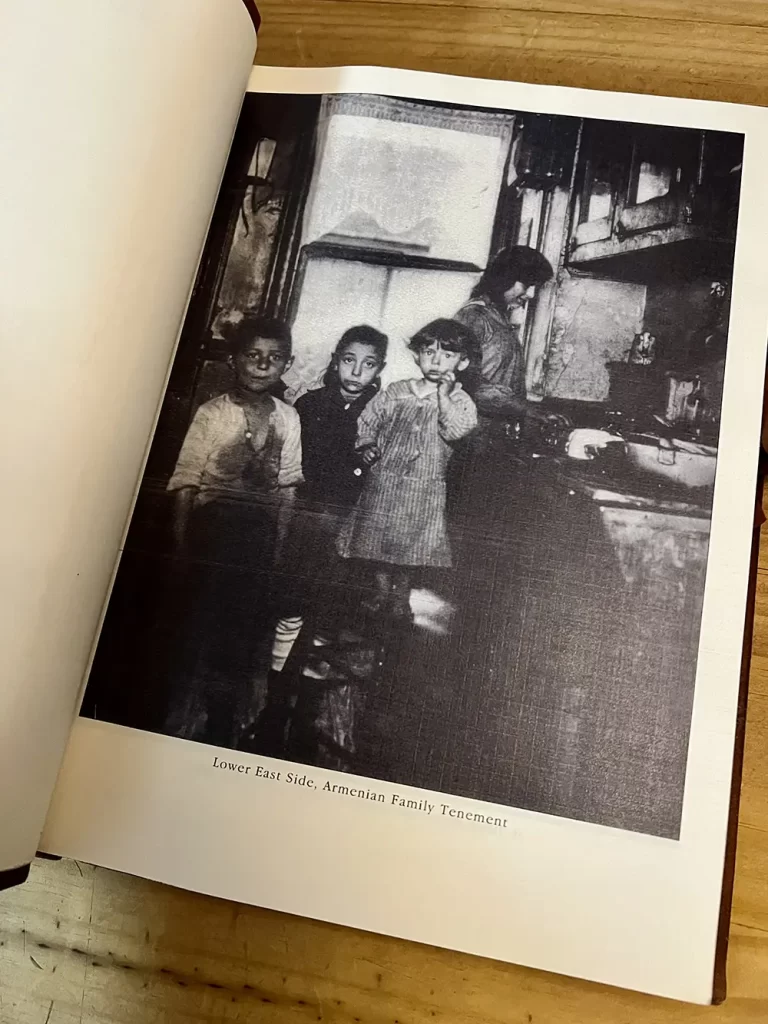
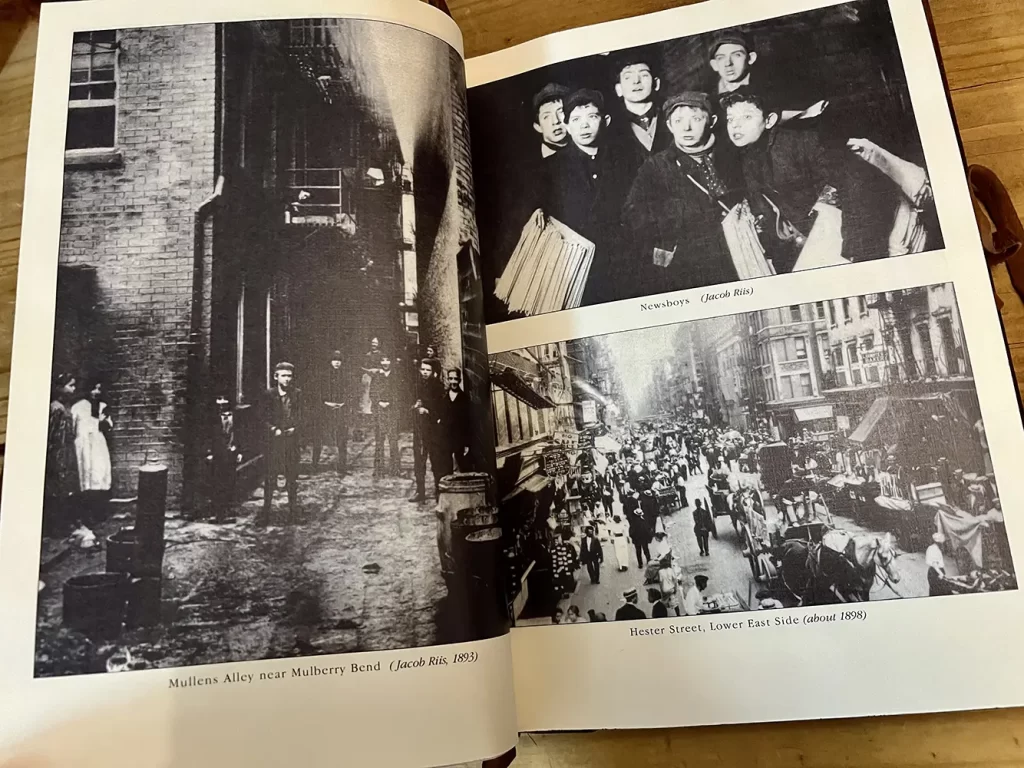
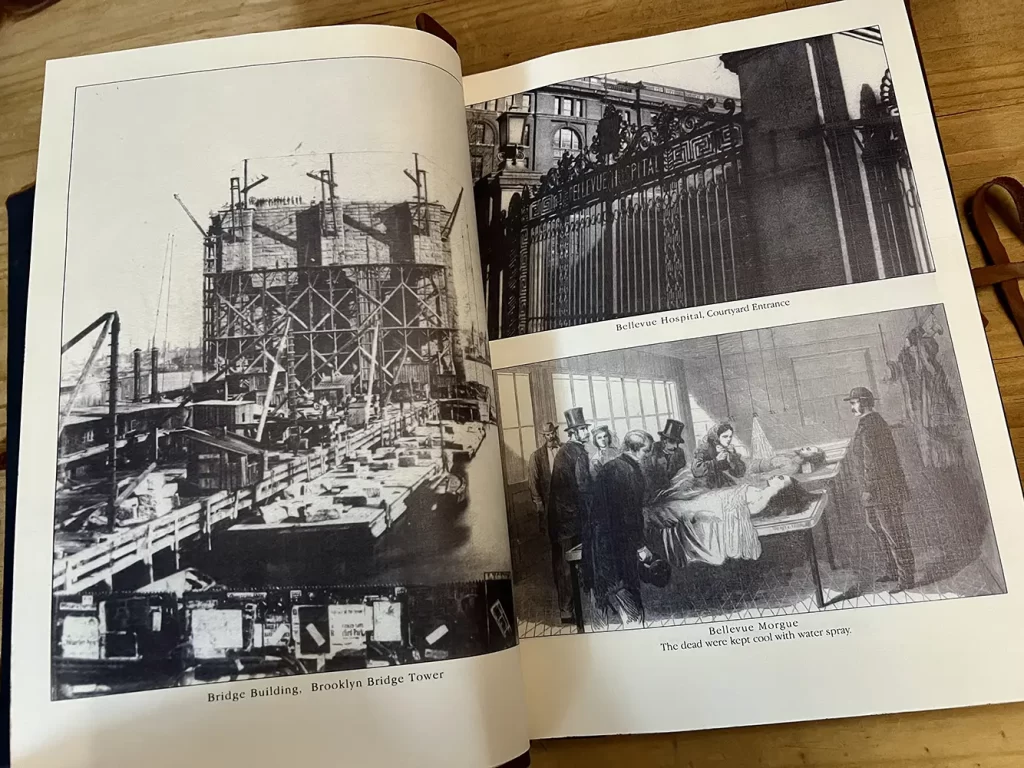
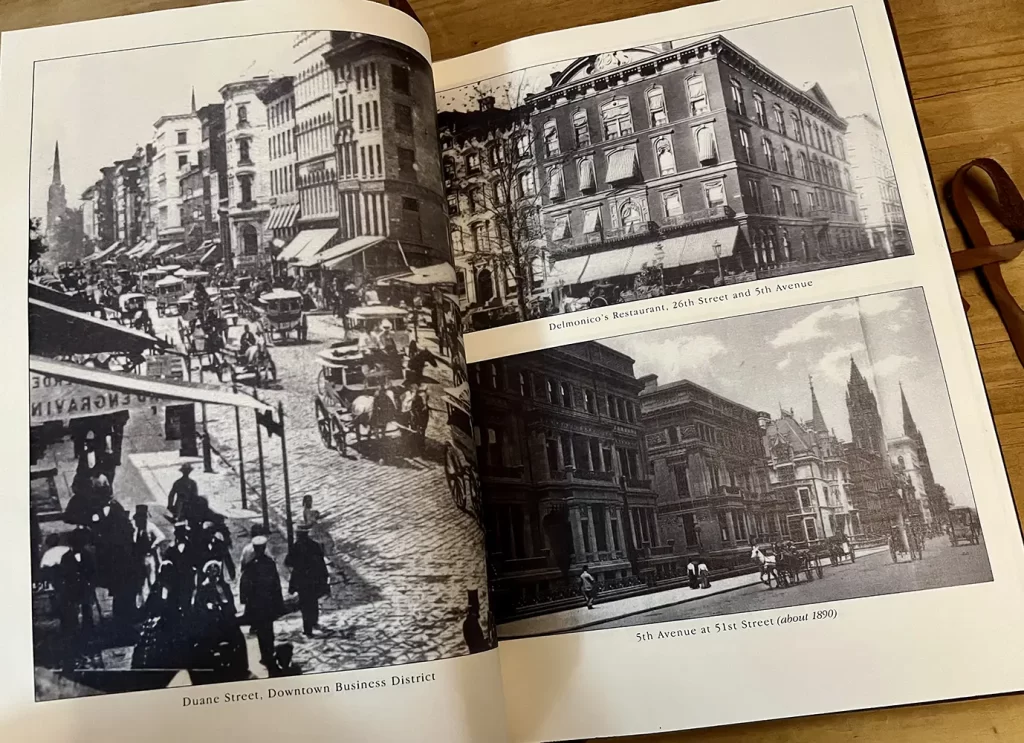
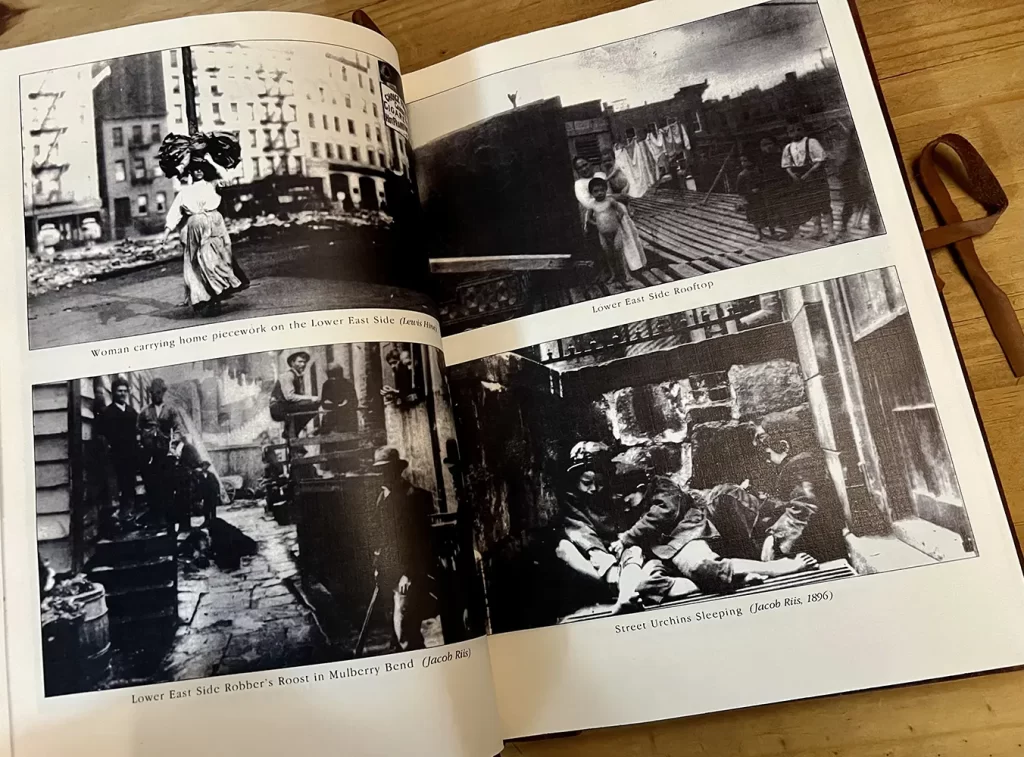
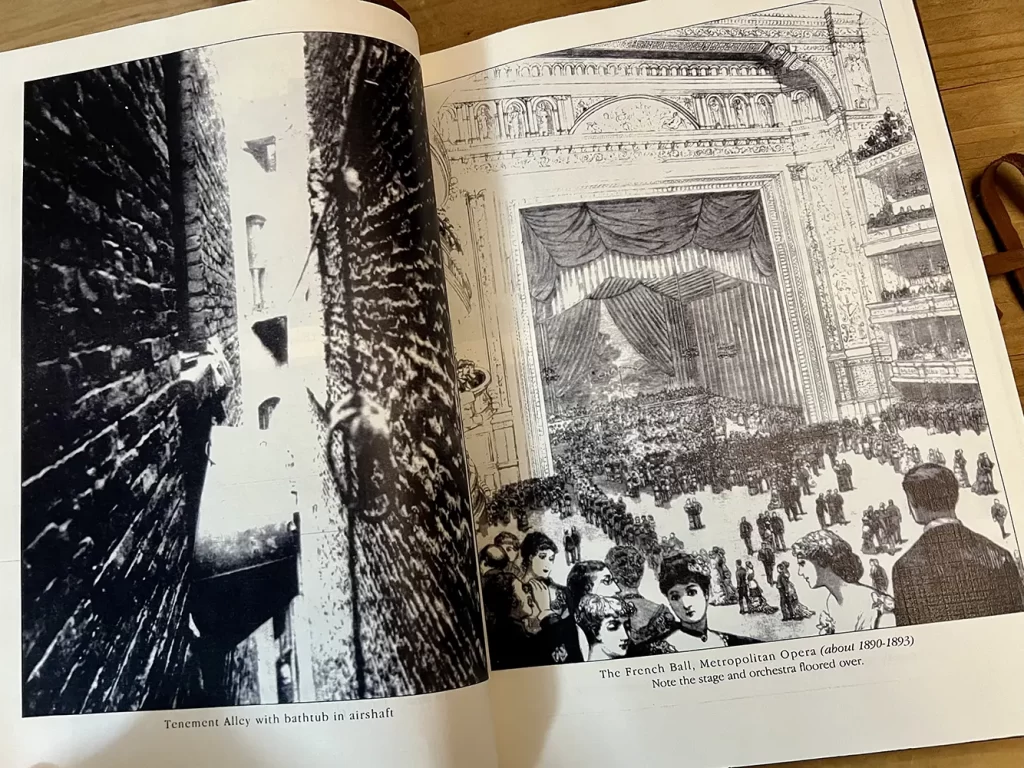
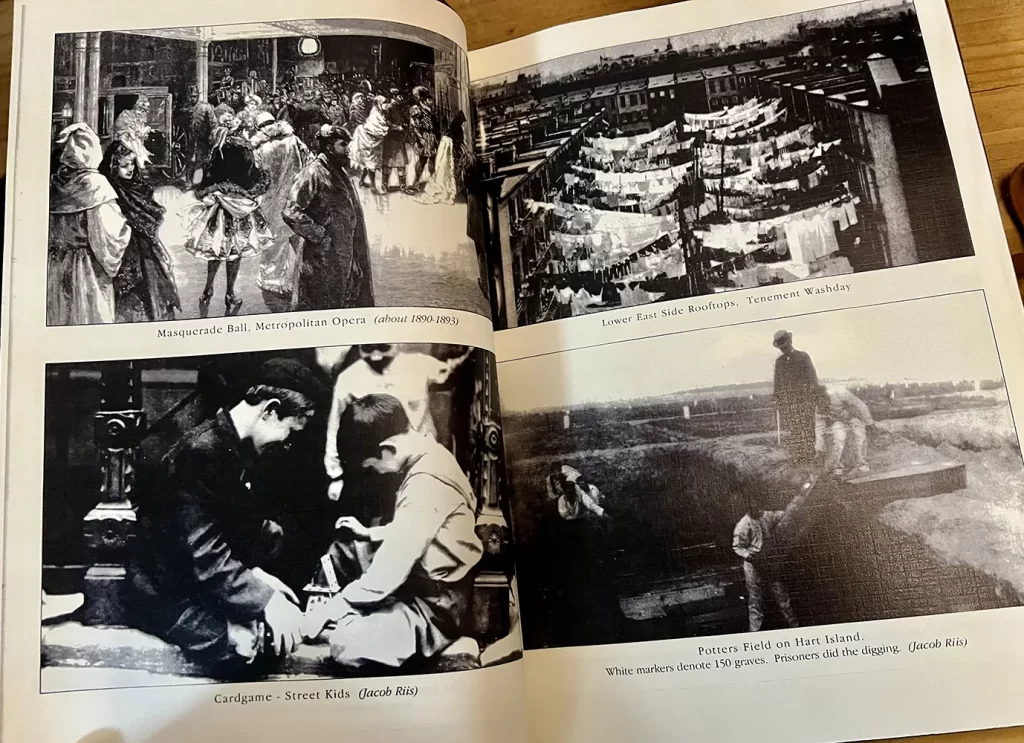
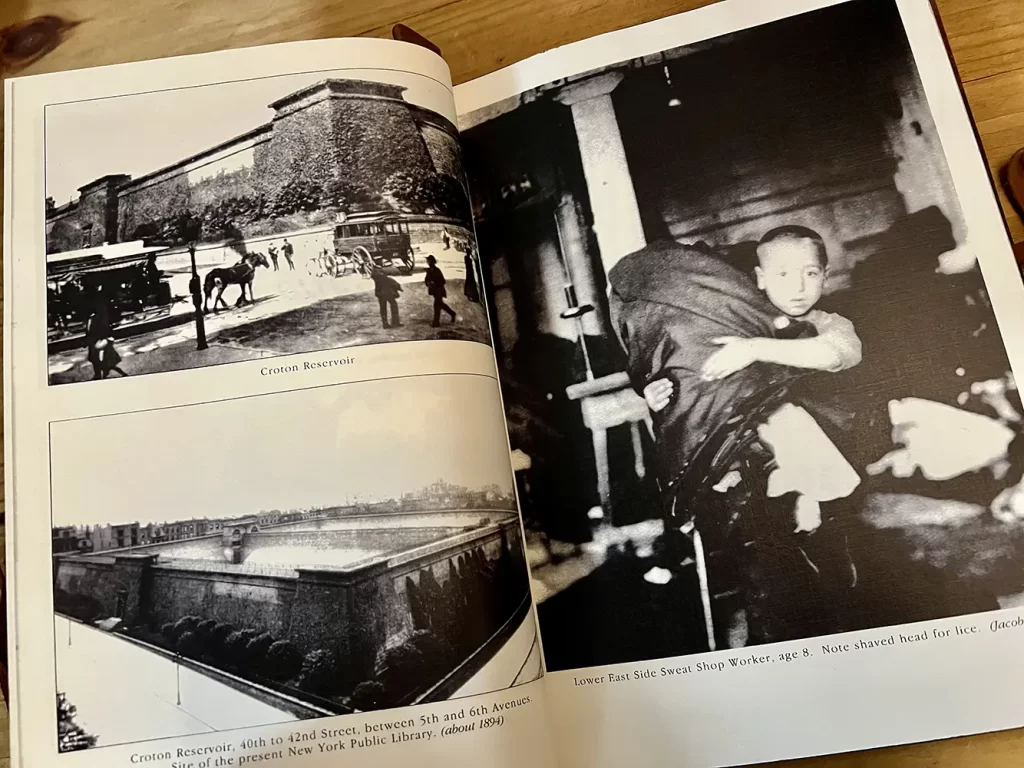
Beautiful binding or not, this script was also destined to go the way of Hwang’s, though the reasons why are not clear other than the reference to it being “too slavish” to the book. At the time, Variety reported that “[a] handful of Paramount execs received the delicate volume” and it “caught the attention of several directors including Peter Weir (The Last Wave) and Philip Kaufman (Rising Sun)”. In the end, the latter did come on board, with the Los Angeles Times explaining that, after moving on from Katz’s script, Rudin hired Kaufman to attempt a third version, but it did not get off the ground either.
By the time the novel’s sequel, The Angel of Darkness, was published in 1997, Caleb revealed to the Los Angeles Times that Rudin “has had three writers and at least six drafts — none of them done by me. He never fulfilled his pledge to bring me in.” In addition, significant budgetary concerns held the project up. Variety reported that Curtis Hanson, originally attached to direct, departed over budget disagreements, while Paramount objected to the proposed $50 million budget when Kaufman joined. To explain his position on these various points of contention, Caleb told Salon in 1997:
“I don’t know that they really understood what book they were buying in a certain sense. It’s a period piece, yes, but that’s not hard. Period pieces are coming out all the time now. It doesn’t have to be that expensive, either. But it’s an ensemble piece that doesn’t happen to involve a love story. And that’s where they’re really tripping. They’re trying to make it a star vehicle with a love story. Well, that’s not the book they bought.”
Ultimately, the project stalled in pre-production and was shelved until 2014 when the president of Paramount Television made a surprise announcement that the newly relaunched television division of Paramount had several projects in development including “a drama series inspired by Caleb Carr’s best-selling novel, The Alienist, with Anonymous Content (True Detective) executive producing.” This, of course, would go on to become the TV series starring Daniel Brühl and Luke Evans — a series that has a long and complex production history of its own.
I hope you enjoyed this rare glimpse of the special volume of Katz’s script. In the next installment of this 30th anniversary series will return to the books themselves and dive into the publication history of The Alienist’s sequel. You can continue reading here. And if any visitors have further information about the script or the early history of attempts to take The Alienist to the screen that you would like to share, please do feel free to get in touch.

